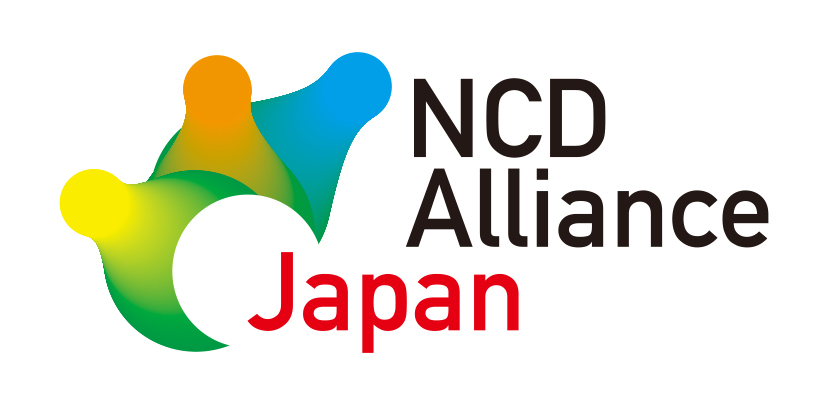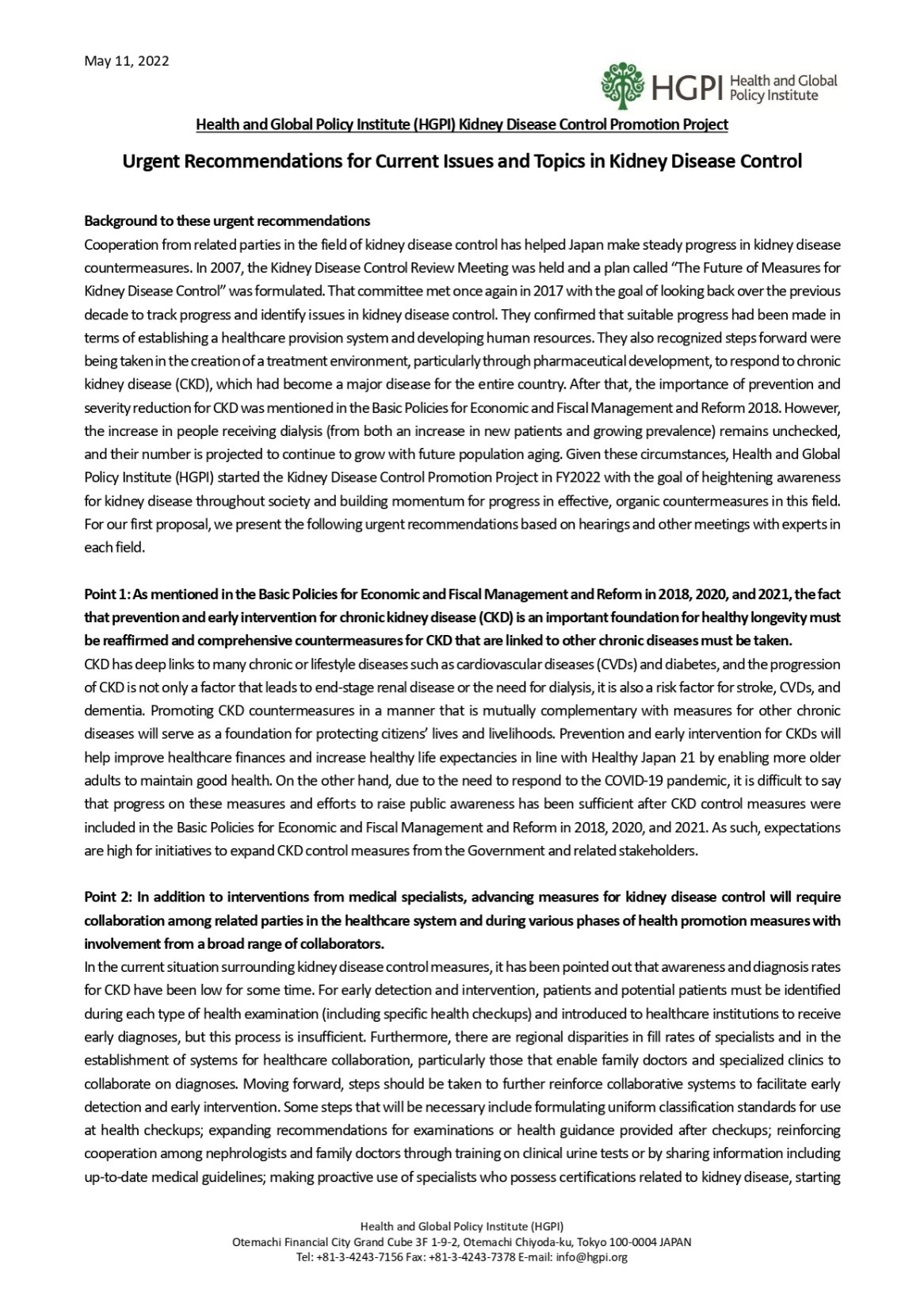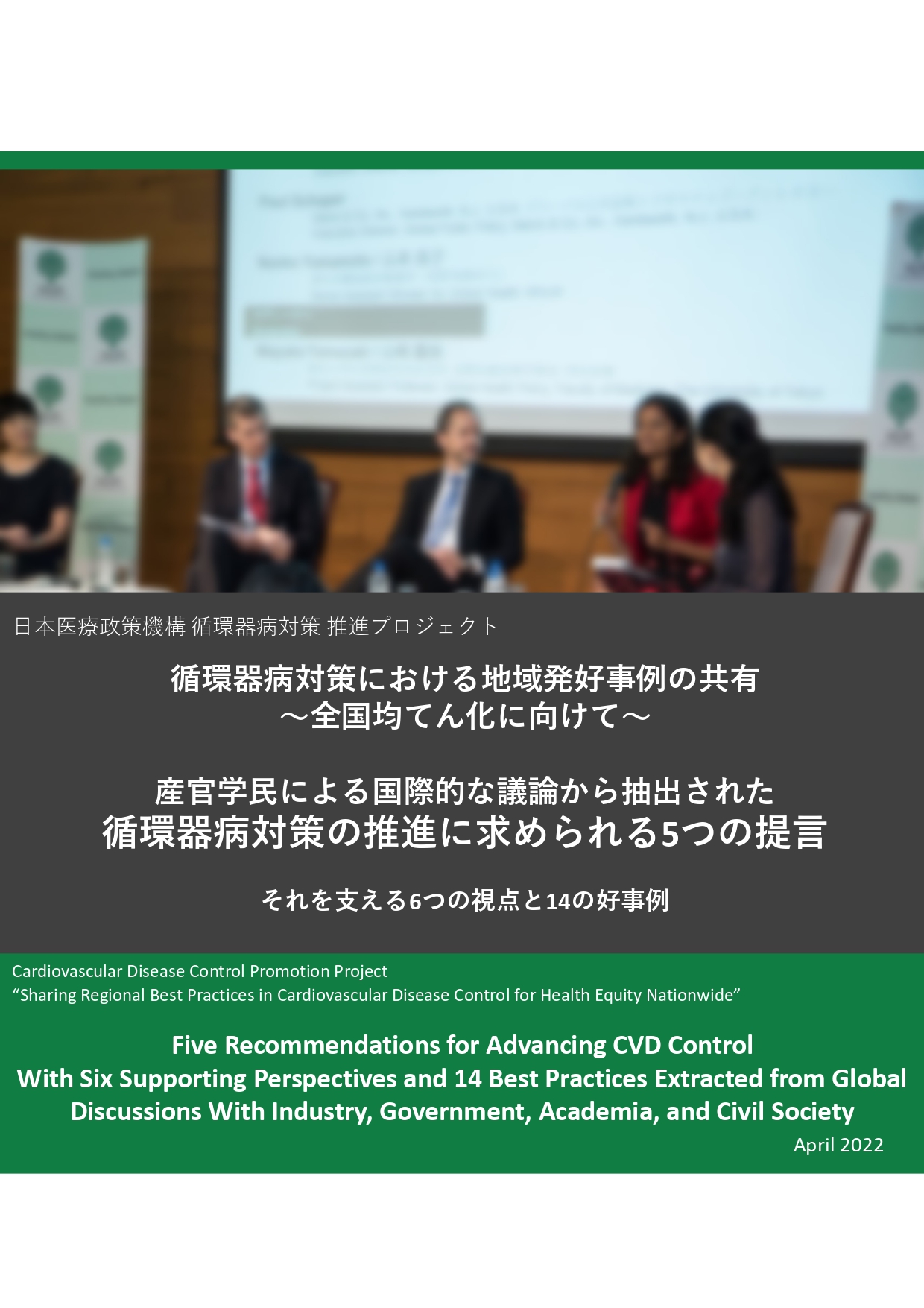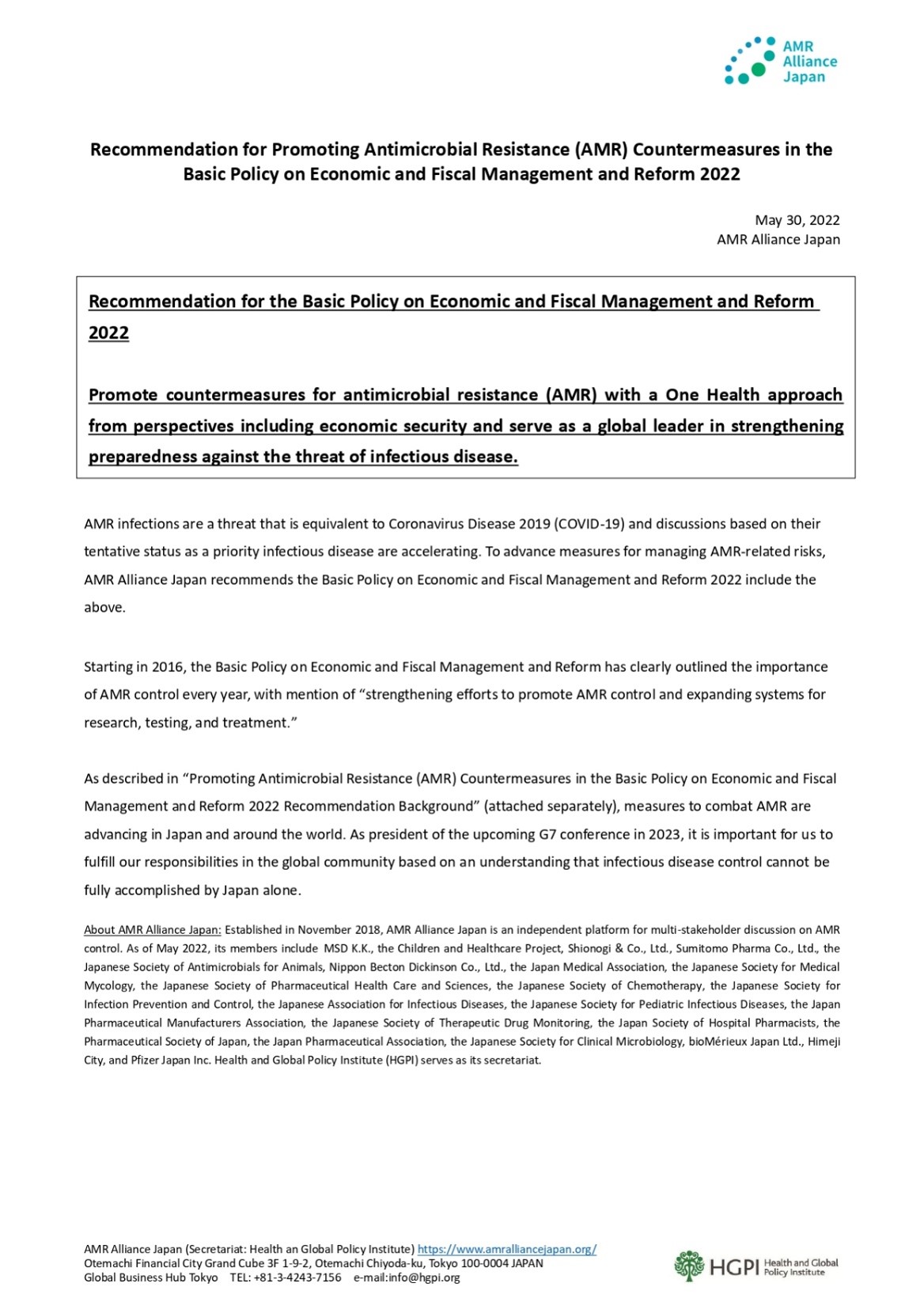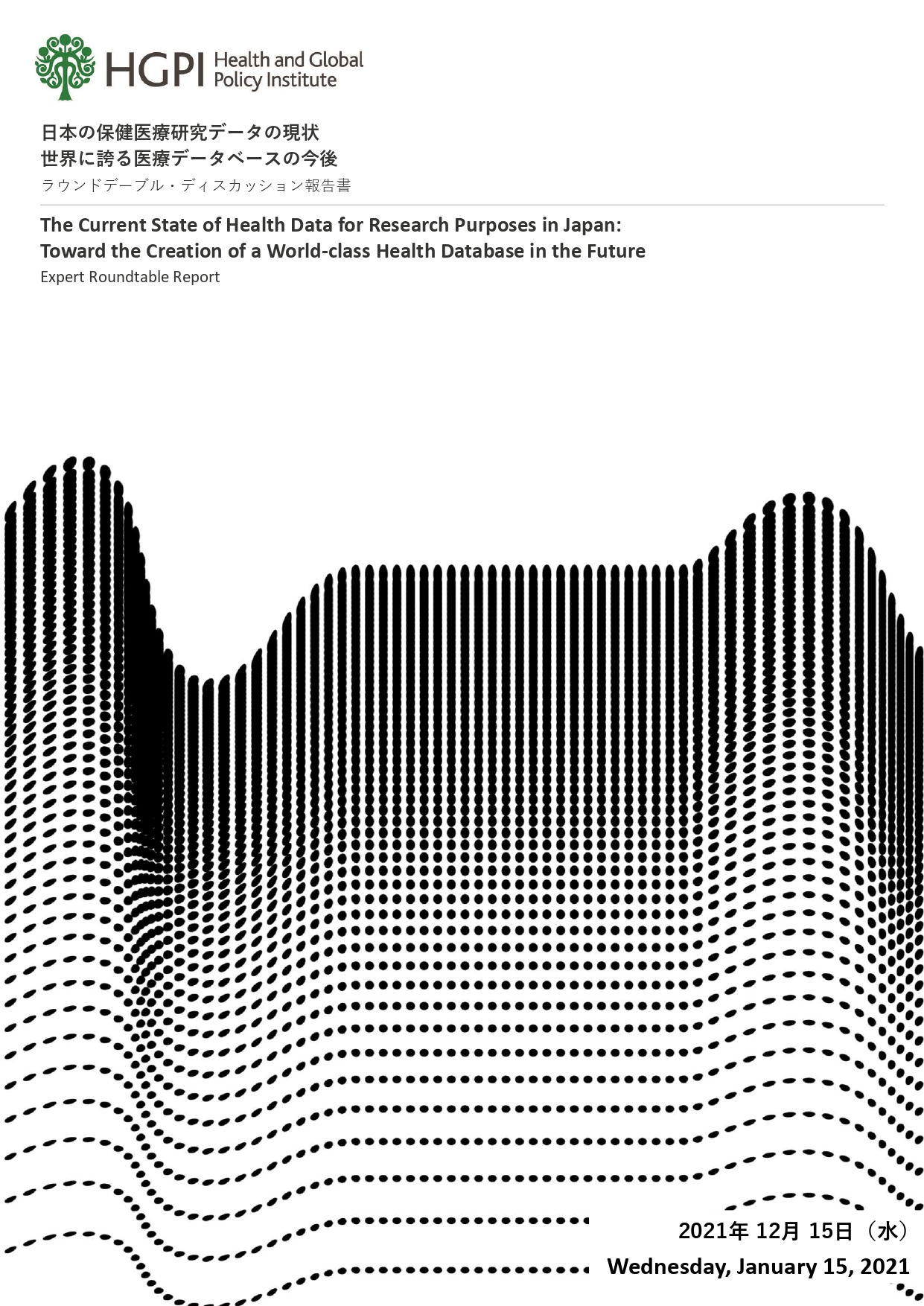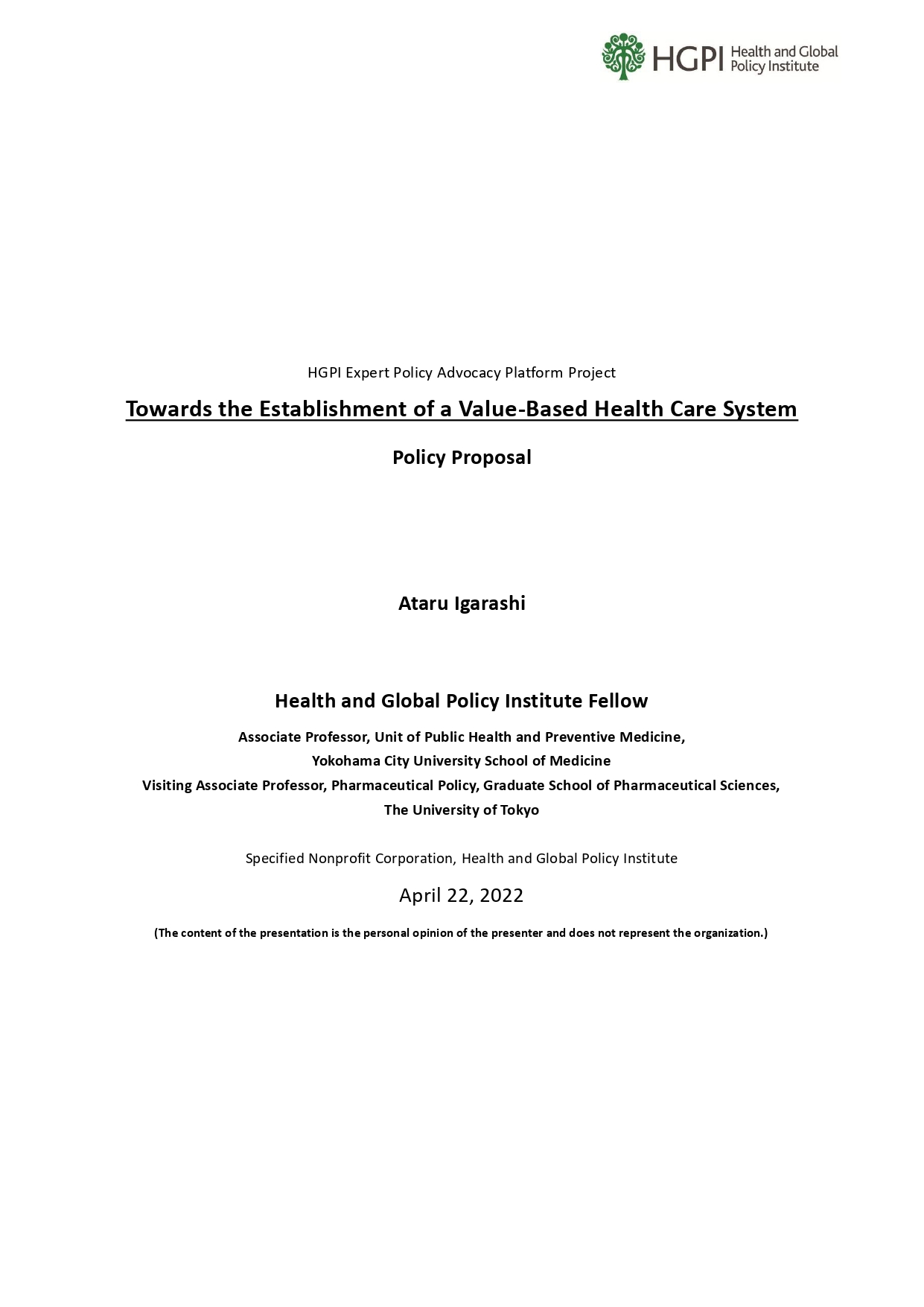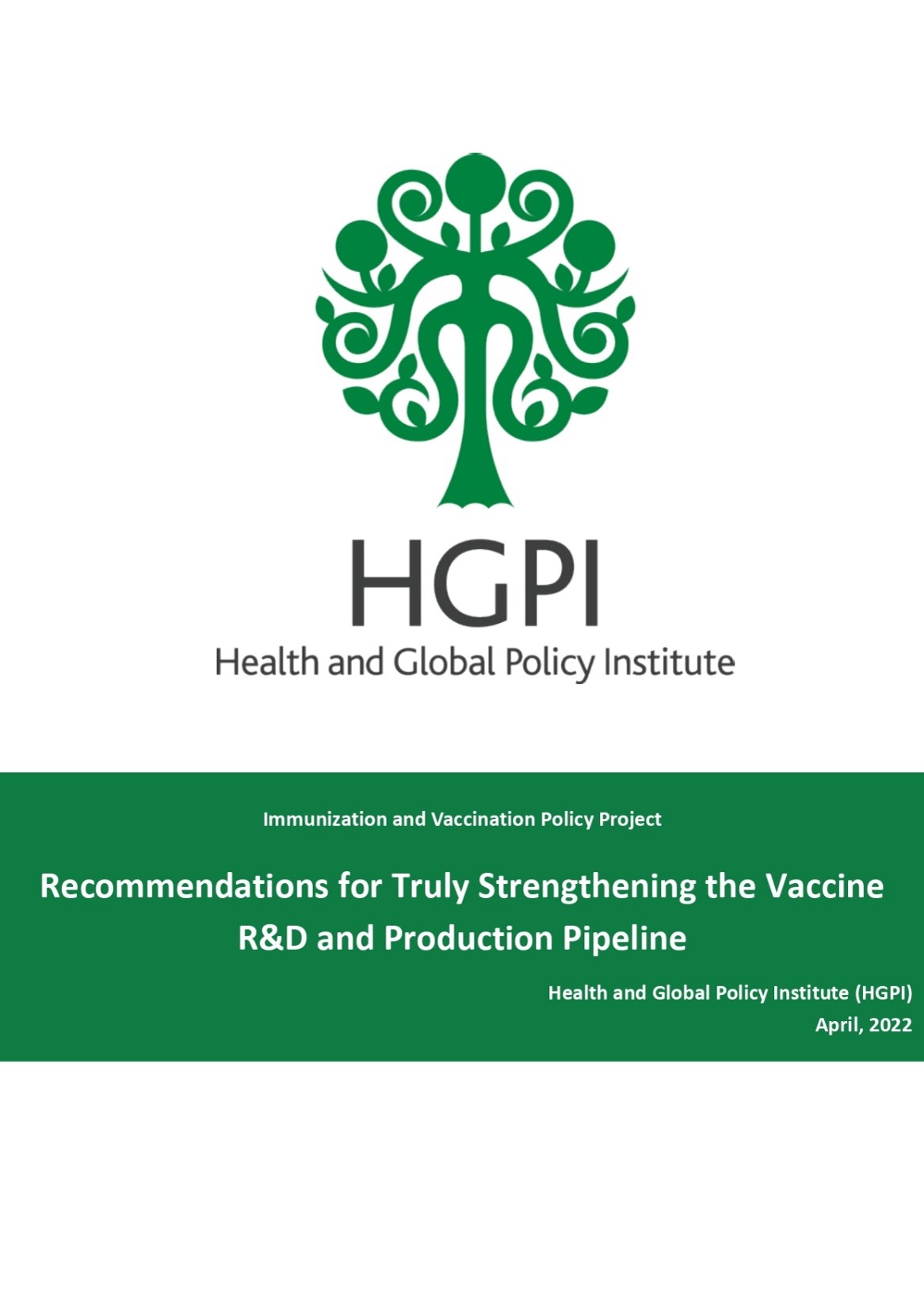Current Activities (April – June 2022)
CONTENTS
- About Health and Global Policy Institute (HGPI)
- Top Global Health Policy Think Tanks 2020
- NCDs: Non-Communicable Diseases
- AMR: Antimicrobial Resistance
- Future of the Healthcare System
- Women’s Health
- Vaccinations
- Child Health
- Non-partisan Diet Member Briefing – 30-minute Health Policy Update
- Other Activities
- Lectures and Media Coverage
- Advocacy Activities to Encourage the Adoption of the Recommendations in Our Policy Proposals
- Providing Professional Expertise
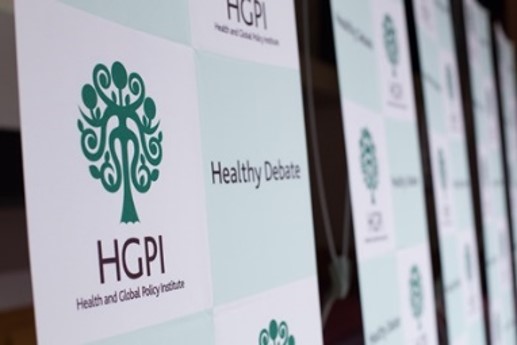
About Health and Global Policy Institute (HGPI)
Non-profit, Independent, and Global
Health and Global Policy Institute (HGPI) is a Tokyo-based independent and non-profit health policy think tank, established in 2004.
Since establishment, HGPI has pursued its mission of “Achieving citizen-centered health policies by bringing broad stakeholders together in its capacity as an independent think-tank to generate policy options for the public.” One of the Institute’s guiding principles in activities for this mission is to hold fast to its independence without adhering to the interests of any political party or organization. HGPI will continue to maintain political neutrality and independence from any organization in conducting its activities.
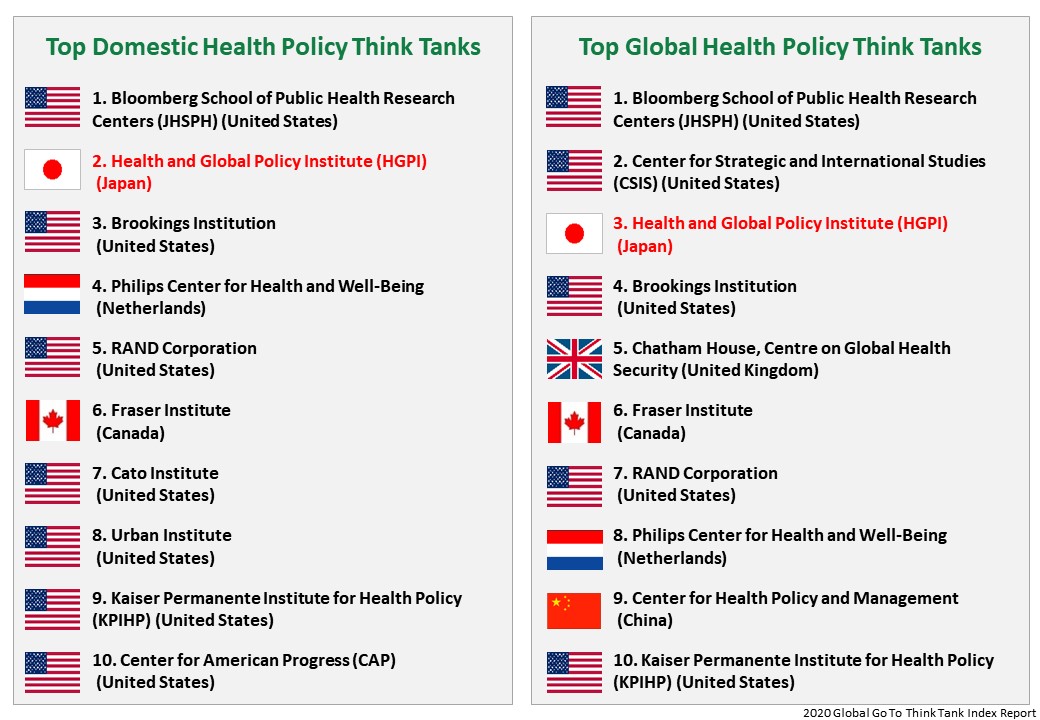
Top Global Health Policy Think Tanks 2020
Ranked Third in the World Among Global Health Policy Think Tanks
HGPI was ranked third among global health policy think tanks worldwide in University of Pennsylvania’s 2020 Global Go To Think Tank Index Report, published in January 2021. HGPI has been included in the ranking for twelve consecutive years, placing it among leading policy organizations.
“HGPI’s ranking is the result of its independence, the diversity of its funding sources, and its commitment to working globally by publishing all of its work in both English and Japanese. Encouraged by these results, we will double our efforts to continue to have a positive impact on society as a think tank specializing in health policy.” –HGPI Chairman Kiyoshi Kurokawa
“Especially during the pandemic, our work to advocate for citizens, patients, and healthcare workers is of the utmost importance. Now, more than ever, the world needs open and fair discussions on health policy. We will continue to foster such discussions, toward the creation of better policy ideas developed out of the combined knowledge of diverse stakeholders from the public and private sectors.” –HGPI CEO and Board Member Ryoji Noritake
NCDs: Non-Communicable Diseases
NCD Alliance Japan
NCD Alliance Japan is a collaborative platform for civil society organizations in the NCD community steered by the Health and Global Policy Institute. Its aim is to further promote comprehensive, cross-cutting NCD policies.
Since 2013, NCD Alliance Japan has served as Japan’s point-of-contact for the NCD Alliance, which brings together over 2,000 civil society organizations and academic institutions in more than 170 countries. NCD Alliance Japan was officially recognized as a full member of the NCD Alliance in January 2019.
2022.05.11

The Kidney Disease Control Promotion Project Urgent Recommendations
Establishing Kidney Disease Control Measures with Patient, Citizen, and Community Engagement and Collaboration: Recommendations for Current Issues and Topics in Kidney Disease Control
To heighten interest in kidney disease throughout society, HGPI began the Kidney Disease Control Promotion Project in 2022 to help build momentum for promoting more effective and organic kidney disease countermeasures. As the first proposal from this project, we have formulated the following emergency recommendations based on hearings with specialists in each field.
Issues and discussion points for advancing kidney disease control
- The fact that prevention and early intervention for chronic kidney disease (CKD) is an important foundation for healthy longevity must be reaffirmed and comprehensive countermeasures for CKD that are linked to other chronic diseases must be taken.
- In addition to interventions from medical specialists, advancing kidney disease control will require collaboration among related parties in the healthcare system and during various phases of health promotion measures with involvement from a broad range of collaborators.
- Community- and prefecture-based best practices in kidney disease control are beginning to emerge and there are high expectations for them to be shared and expanded horizontally.
- Kidney disease control measures that are based on the perspectives of patients and other affected parties must be advanced.
Advisory board members
- Naoki Kashihara (Chairman, Japanese Society of Nephrology; Vice President, Kawasaki Medical School; Professor, Department of Nephrology/Hypertension, Kawasaki Medical School)
- Yukie Kitajima (Associate Professor, Division of Medical Nutrition, Faculty of Healthcare, Tokyo Healthcare University)
- Kiyoshi Kurokawa (Chairman, HGPI)
- Yoko Miyamoto (Standing Director, Japan Association of Kidney Disease Patients; Person living with a kidney disease)
- Toshiki Moriyama (Professor, Health and Counselling Center, Osaka University)
- Masashi Mukoyama (Professor, Department of Nephrology, Faculty of Life Sciences, Kumamoto University)
- Takeshi Shukunobe (CEO, PPeCC; Person living with a kidney disease)
- Koichi Tamura (Head, Department of Medical Science and Cardiorenal Medicine, Graduate School of Medicine, Yokohama City University)
- Keitaro Yokoyama (Professor, School of Medicine, Jikei University; Director, Jikei University Harumi Toriton Clinic)
2022.04.11
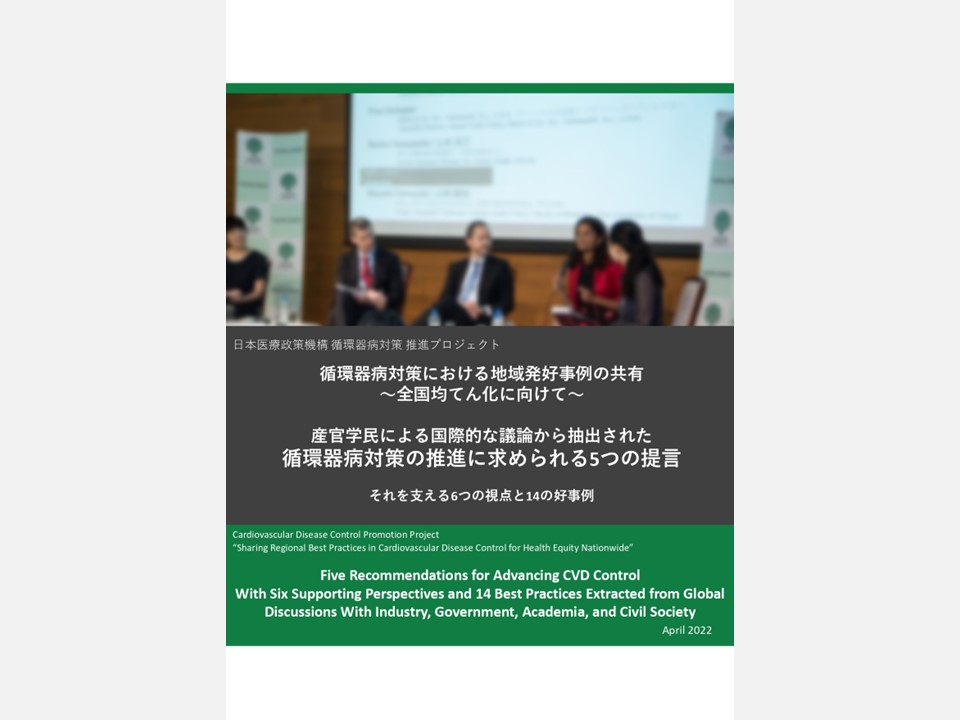
The HGPI Cardiovascular Disease Control Promotion Project Policy Recommendations
Five Recommendations for Advancing CVD Control With Six Supporting Perspectives and 14 Best Practices Extracted from Global Discussions With Industry, Government, Academia, and Civil Society
Focusing on heart disease, these recommendations were formulated after conducting hearings and sharing current best practices with opinion leaders, holding advisory board discussions, and hosting a global expert meeting.
Five recommendations for advancing CVD control
1. Support efforts for CVD control that are based on local governments and regions.
2. Encourage the horizontal spread of best practices from prefectures, regions, and abroad.
3. Promote collaboration and cooperation with people living with or affected by CVDs, who are stakeholders.
4. Aspects of the healthcare provision system related to CVDs should be reorganized in a manner that anticipates the use of innovations and changes in society.
5. Advocate the importance of CVD control with a field of view that encompasses progress and reform in other fields of disease control and in the overall healthcare system.Six perspectives that support these recommendations
Perspective 1: Comprehensive perspectives on advancing CVD control
Perspective 2: Awareness raising and prevention – Promoting awareness raising and prevention measures for each phase through multi-stakeholder action
Perspective 3: Provision systems for services related to health, medicine, and welfare – Healthcare and welfare provision systems must be established or corrected Perspective 4: Systems for promoting research – Promoting CVD research as a national strategy
Perspective 5: The support system for people living with or affected by CVDs – Achieving CVD control measures driven by people living with or affected by CVDs
Perspective 6: Cross-cutting policy perspectives that include CVD control – Sharing and utilizing medical and health information while applying innovation
Advisory board members
- Takashi Fujii (Vice Chairman, System Council, Nagasaki Regional Healthcare Collaboration Network; Vice Chairman, Nagasaki Prefecture Medical Association)
- Hitoshi Fukuhara (Representative Director, Heart Valve Voice)
- Kazuhiro Hara (Specially Appointed Professor, Seto Inland Sea Regional Research Center, Kagawa University)
- Mei Haruya (Head of Market Access, Policy & New Products, Novartis Pharma K.K.)
- Kenichi Hirata (Professor, Division of Cardiovascular Medicine, Department of Internal Medicine, Graduate School of Medicine, Kobe University)
- Yoichi Hoshikawa (Medical Coordination Officer, Healthcare and Welfare Department, Kagawa Prefectural Government)
- Satoshi Imamura (Vice President, Japan Medical Association)
- Mitsuaki Isobe (Director, Sakakibara Heart Institute, Japan Research Promotion Society for Cardiovascular Diseases)
- Hiroaki Kitaoka (Professor, Department of Cardiology and Geriatrics, Kochi University)
- Issei Komuro (Professor, Department of Cardiovascular Medicine, Graduate School of Medicine, The University of Tokyo)
- Katsunori Kondo (Professor, Center for Preventive Medicinal Science, Chiba University)
- Tomohiro Kuroda (Professor, Department of Medical Informatics, Graduate School of Medicine and Faculty of Medicine, Kyoto University)
- Koji Maemura (Professor, Department of Cardiovascular Medicine, Graduate School of Biomedical Sciences, Nagasaki University)
- Shinsuke Muto (Clinical Professor, Graduate School of Medical and Dental Sciences, Tokyo Medical and Dental University)
- Ryozo Nagai (President, Jichi University)
- Yoko M. Nakao (Director, Registry Promotion Office, Department of Medical and Health Information Management, Open Innovation Center, National Cerebral and Cardiovascular Center)
- Yosuke Noji (Person Living with a CVD; Graduate Student, Graduate School of Sociology, Keio University)
- Masanori Otake (Policy Director, Regulatory Affairs and Policy Promotion Headquarters, GE Healthcare Japan Corporation)
- Yoshio Yazaki (President, Japan Research Promotion Society For Cardiovascular Diseases)
Special advisors
- Kei Sato (Member, House of Councilors)
- Hanako Jimi (Member, House of Councilors; Executive Director, Parliamentary Association for Follow-up on Stroke and Cardiovascular Disease Control Measures)
AMR: Antimicrobial Resistance
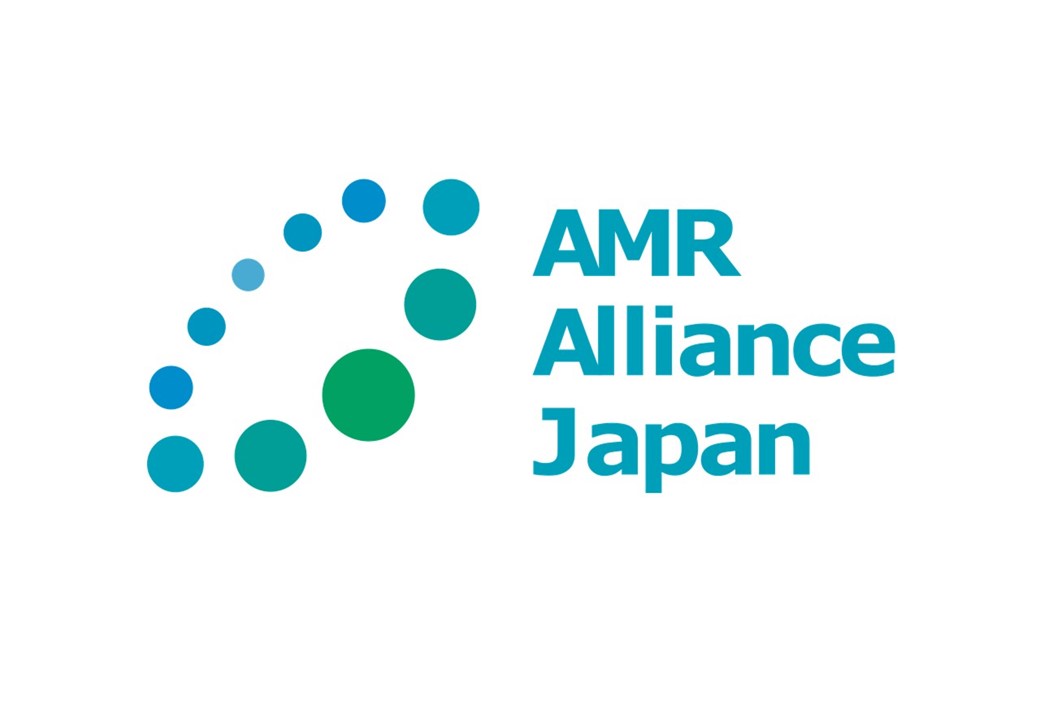
AMR Alliance Japan
Established in November 2018 by academic societies working in infectious disease medicine, pharmaceutical companies, and medical device makers, AMR Alliance Japan is an independent platform for the promotion of multisector discussion on AMR countermeasures. The Alliance develops and disseminates policy recommendations to: (1) ensure that AMR countermeasures are in line with the current situation of patients and healthcare settings; (2) promote the national and international AMR agenda; and (3) advance Japan’s AMR policy.
2022.05.30
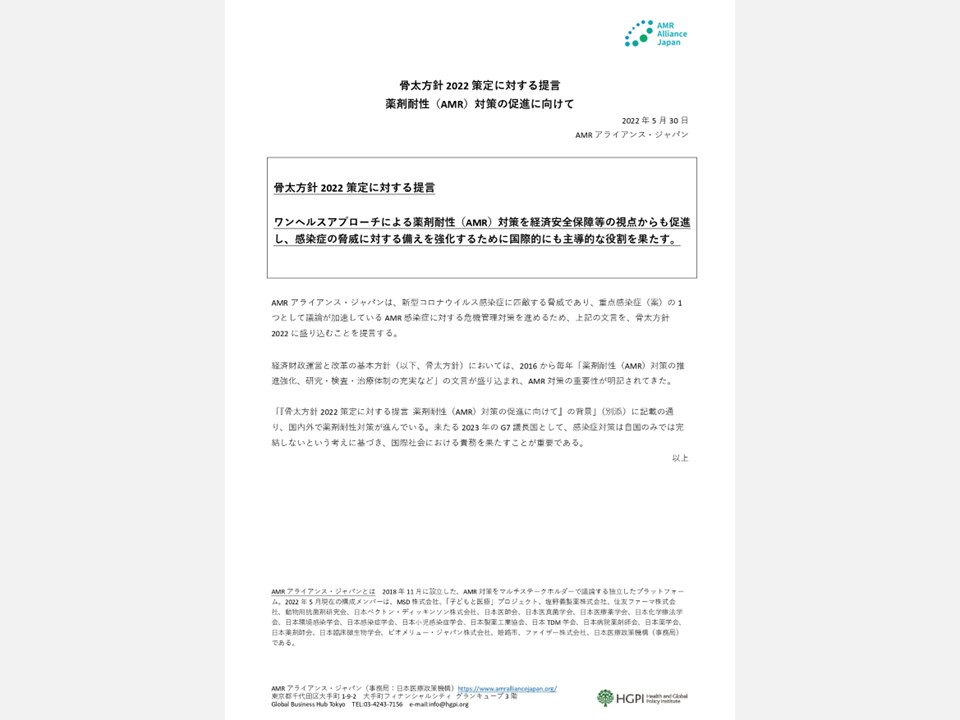
Urgent Recommendation
Recommendation for the Basic Policy on Economic and Fiscal Management and Reform 2022
AMR infections are a threat that is equivalent to Coronavirus Disease 2019 (COVID-19) and discussions based on their tentative status as a priority infectious disease are accelerating. To advance measures for managing AMR-related risks, AMR Alliance Japan recommended the Basic Policy on Economic and Fiscal Management and Reform 2022 include the below.
Promote countermeasures for antimicrobial resistance (AMR) with a One Health approach from perspectives including economic security and serve as a global leader in strengthening preparedness against the threat of infectious disease.
2022.04.28
Symposium
Making the ‘Silent Pandemic’ of AMR Heard: What Countries Leading the Charge Against AMR are Doing to Ensure their Populations are Protected
AMR Alliance held a symposium gathering experts from Japan and other countries that are leading the way in the fight against AMR. Participants from Japan, Germany, the United Kingdom, and the United States discussed each country’s AMR response, and possibilities for future collaborations in this space.
This symposium shared international best practices for stronger policy responses against AMR as well as trends of policy discussions on this issue. Moving forward, AMR Alliance Japan and HGPI will continue to work to make the ‘silent pandemic’ of AMR heard.
Symposium participants
- Yasuhisa Shiozaki (Former Member, House of Representatives / Member, WHO Global Leaders Group on Antimicrobial Resistance)
- Sally Davies (UK Special Envoy on Antimicrobial Resistance / Member, WHO Global Leaders Group on Antimicrobial Resistance)
- Dagmar Reitenbach (Head of Division Global Health, Federal Ministry of Health (BMG), Germany)
- Kevin Outterson (Executive Director, CARB-X)
- Norio Ohmagari (Director, Department of Infectious Diseases, National Center for Global Health and Medicine / Director, AMR Clinical Reference Center, National Center for Global Health and Medicine)
- Eiji Hinoshita (Assistant Minister for Global Health and Welfare, Ministry of Health, Labour and Welfare)
Future of the Healthcare System
2022.05.25
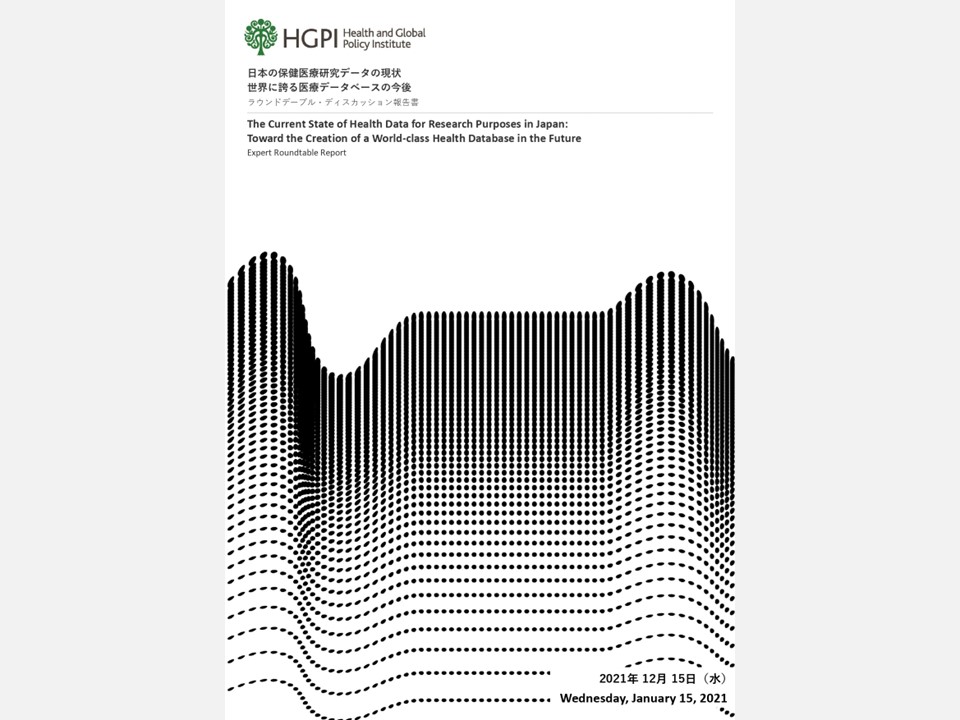
Roundtable Report
The Current State of Health Data for Research Purposes in Japan: Toward the Creation of a World-class Health Database in the Future
HGPI has released a new report, “The Current State of Health Data for Research Purposes in Japan: Toward the Creation of a World-class Health Database in the Future.” This report is based on roundtable discussion held on December 15, 2021 to discuss Japan’s health data and policies to further promote its use for research in the future.
Meeting participants
- Karen Makishima (Minister for Digital Agency; Minister in Charge of Administrative Reform; Minister of State for Regulatory Reform) (opening remarks delivered via prerecorded video)
- Shinichi Noto (Professor, Faculty of Rehabilitation, Niigata University of Health and Welfare; Director, Center for Health Economics & QOL Research, Department of Occupational Therapy, Niigata University of Health and Welfare; President, International Society for Pharmacoeconomics and Outcomes Research (ISPOR))
- Eiko Shimizu (Project Associate Professor, ITHC, Graduate School of Pharmaceutical Sciences, The University of Tokyo)
- Tomoya Myojin (Assistant Section Chief, Insurance Data Planning Office, Healthcare Coordination Policy Division, Health Insurance Bureau, MHLW)
- Masatoshi Adachi (Chief Data Protection Officer and Director of Risk Management (CDPO), JMDC Inc.; Attorney-at-Law, Patent Attorney, and Registered Information Security Specialist)
- Tomohiro Kuroda (Chief Information Officer (CIO), Kyoto University Hospital; Professor)
- Mitsuru Mizuno (Director, Project for Genome and Health Related Data, Japan Agency for Medical Research and Development (AMED))
- Naohiro Yonemoto (Director, Outcomes and Evidence, Health and Value Overview Division, Pfizer Japan Inc)
2022.05.17

Symposium
Creating a Health System to Withstand Future Crises: Next Steps Toward Enhancing Sustainability and Resilience
HGPI hosted a symposium featuring domestic and global experts to debate health system sustainability and resilience based on lessons learned from Coronavirus Disease 2019 (COVID-19).
Symposium participants
- Keizo Takemi (Member of the House of Councillors; WHO Goodwill Ambassador for Universal Health Coverage)
- Kelly McCain (Head, Healthcare Initiatives, World Economic Forum)
- Hiroaki Miyata (Professor, Keio University)
- Naomi Sakurai (President, Cancer Solutions Co., Ltd)
- Takuko Sawada (Director of the Board, Executive Vice President, Shionogi & Co., Ltd.)
- Yasuhiro Suzuki (President, International University of Health and Welfare; Former Chief Medical and Global Health Officer, Ministry of Health, Labour and Welfare)
2022.04.27
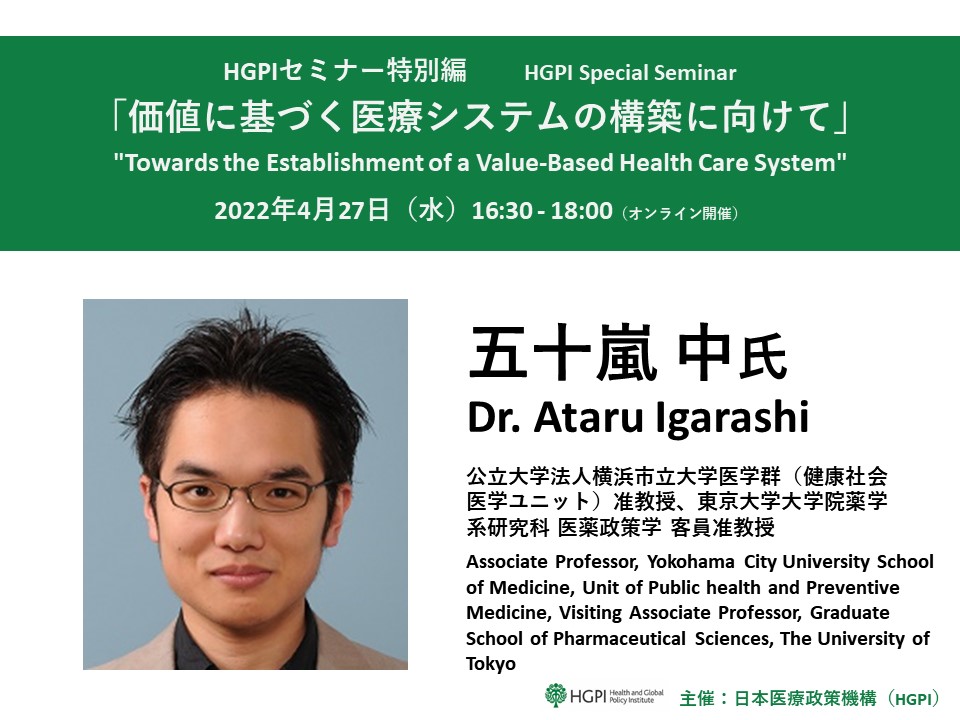
HGPI Special Seminar
HGPI Expert Policy Advocacy Platform “Towards the Establishment of a Value-Based Health Care System”
HGPI has released a set of policy recommendations, “Towards the Establishment of a Value-Based Health Care System: An Analysis of Value-Based Pricing.” The recommendation states that measures to deal with increasing medical costs due to the declining birthrate and aging population as well as the increasing sophistication of medical care are urgent issues, and proposes a drug price system, Value-based pricing (VBP), to evaluate innovative drugs as a specific quantitative and qualitative evaluation method to reflect multifaceted values. For the HGPI Special Seminar, we hosted Dr. Igarashi, an HGPI Fellow, to explain the contents of the recommendation. Participants’ questions and comments were interactively answered and responded to as needed, leading to a lively discussion.
Women’s Health
2022.06.03
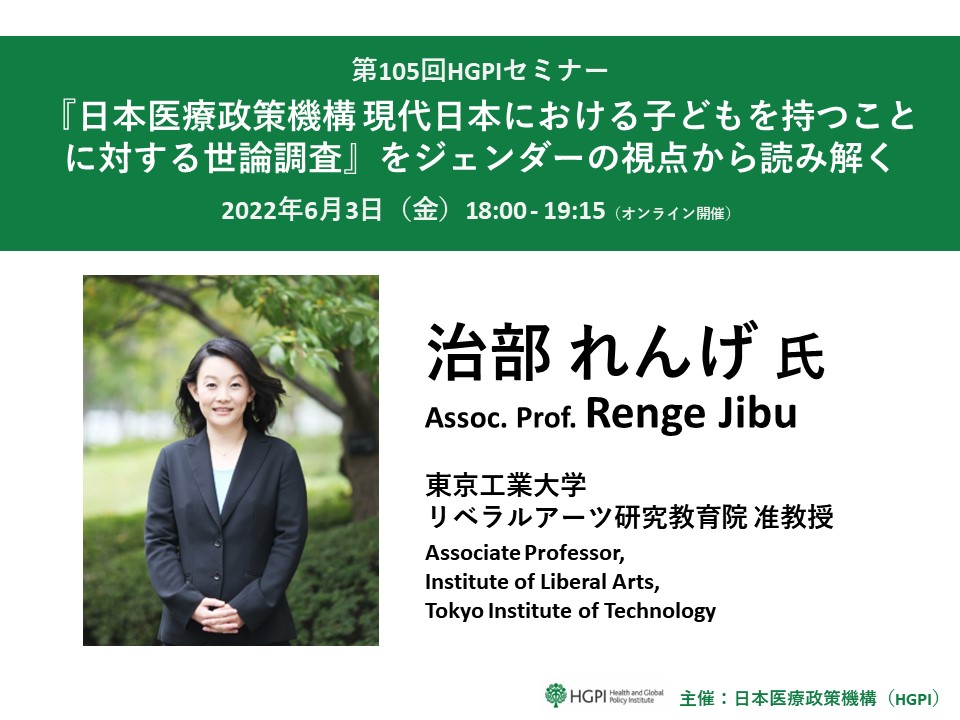
The 105th HGPI Seminar
A Close Look at HGPI’s “Public Opinion Survey on Child-Rearing in Modern Japan” From the Perspective of Gender
In FY2021, the Women’s Health Project conducted “The Public Opinion Survey on Child-Rearing in Modern Japan,” a nationwide online survey of 10,000 men and women ages 25 to 49. Its aim was to identify and propose specific measures that will be necessary and effective for creating a society in which anyone who wants to conceive is able to do so. The HGPI seminar featured Professor Renge Jibu, Associate Professor at the Tokyo Institute of Technology Institute for Liberal Arts and a member of the survey advisory board, who will give a lecture based on the survey report. At the seminar, in addition to issues related to reproductive health and rights education in elementary and middle schools in Japan and the importance of health literacy, Professor Jibu also explained the survey with a focus on the policy decision-making process based on her past experiences being involved in various policies for topics like gender equality.
2022.05.09
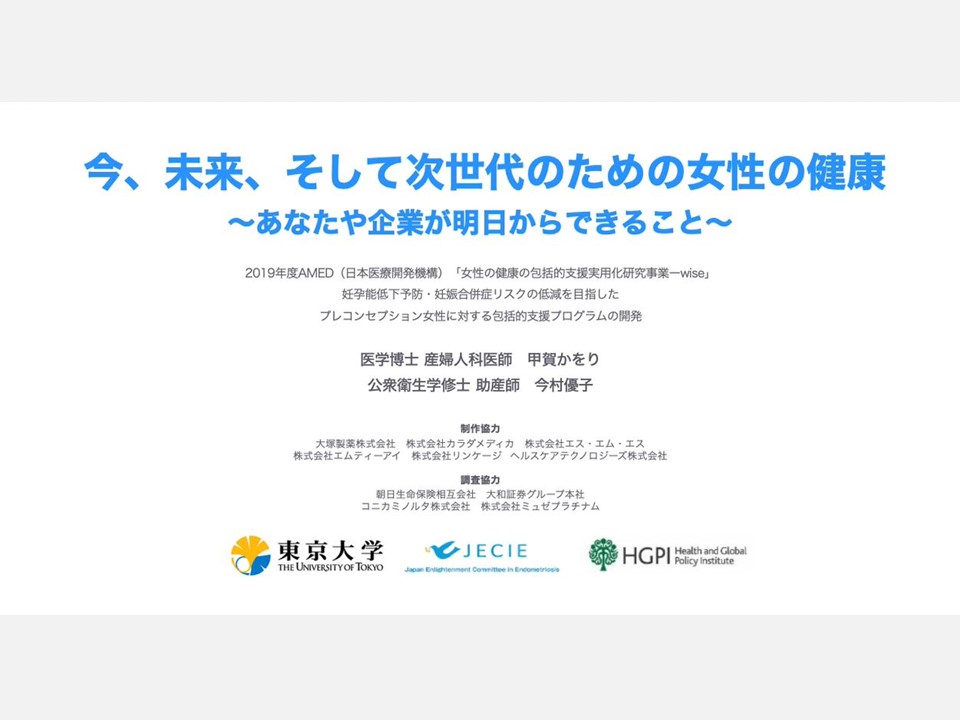
Research Report
Building an Educational Program to Improve Preconception Health Literacy Among Employees and Survey on Program Effectiveness
HGPI gathered information from specialists in various fields to create an educational program for improving preconception health literacy for working adults. The program was then used to conduct educational interventions for 941 male and female employees at two companies. A quantitative study was conducted using an online survey provided before and after the intervention to measure the results of the program.
Recommendations based on survey results: 3 perspectives
Perspective 1: Promote the introduction of preconception health education for employees
Perspective 2: The need for focused efforts to develop content for preconception health education and methods of providing it
Perspective 3: The need for establish company consultation systems and mechanisms that link employees to appropriate consultation and healthcare institutions
Project team
- Yuko Imamura (Manager, HGPI)
- Mariko Nishikitani (Associate Professor, Medical Information Center, Kyushu University Hospital)
- Maya Fujimura (Program Specialist, HGPI)
- Noriko Miwa (Program Specialist, HGPI)
- Hiromi Iwai (Researcher, Graduate School of Public Health, Teikyo University)
- Yoshihisa Horiuchi (Secretary-General, Japan Enlightenment Committee In Endometriosis)
- Keiko Takami (Japan Enlightenment Committee In Endometriosis)
- Kaori Koga (Associate Professor, Department of Obstetrics and Gynecology, Graduate School of Medicine, The University of Tokyo)
Advisory Board Members
- Naoko Arata (Director, Department of Maternal Internal Medicine, Perinatal and Maternal Care Center, National Center for Child Health and Development)
- Norio Isaka (Executive Director, C&R Group Health Insurance Association)
- Miho Egawa (Assistant Professor, Department of Obstetrics and Gynecology, Graduate School of Medicine and Faculty of Medicine, Kyoto University)
- Megumi Kawashima (Division of Public Health, Department of Social Medicine, Shiga University of Medical Science)
- Yasuyuki Kinjo (Assistant Professor, Department of Obstetrics and Gynecology, School of Medicine, University of Occupational and Environmental Health)
Vaccinations
2022.05.11
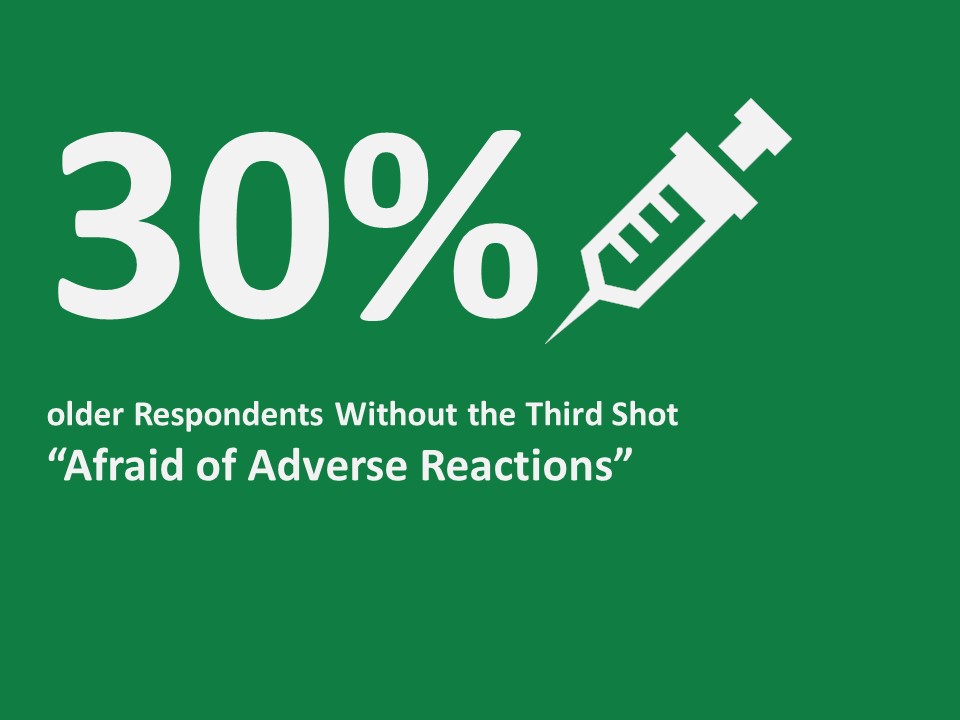 Public Opinion Survey on COVID-19 Vaccines and Immunization and Vaccination Policy
Public Opinion Survey on COVID-19 Vaccines and Immunization and Vaccination Policy
30% older Respondents Without the Third Shot “Afraid of Adverse Reactions”
In addition to opinions regarding COVID-19 vaccines, the survey also examined general topics in immunization and vaccination policy.
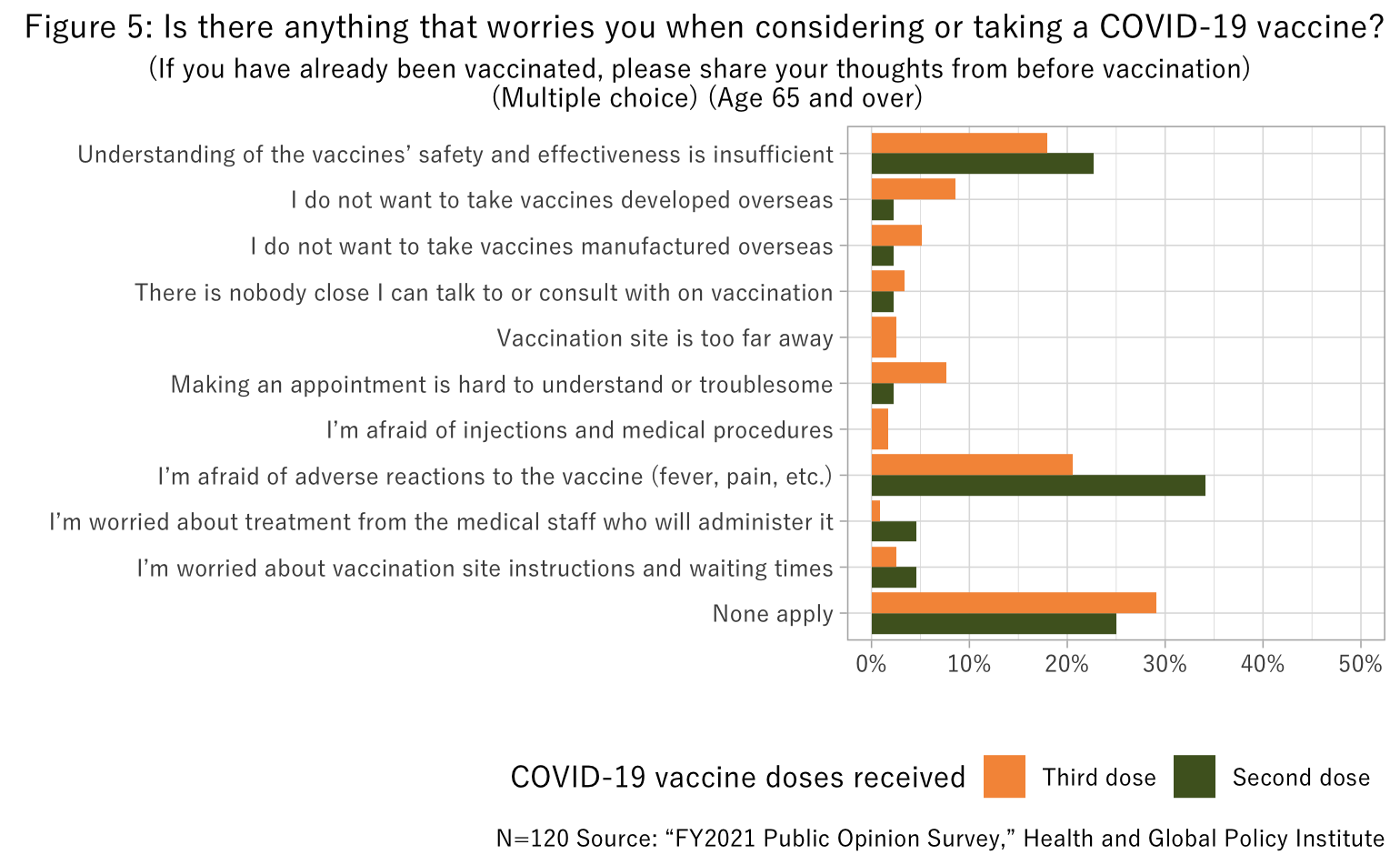
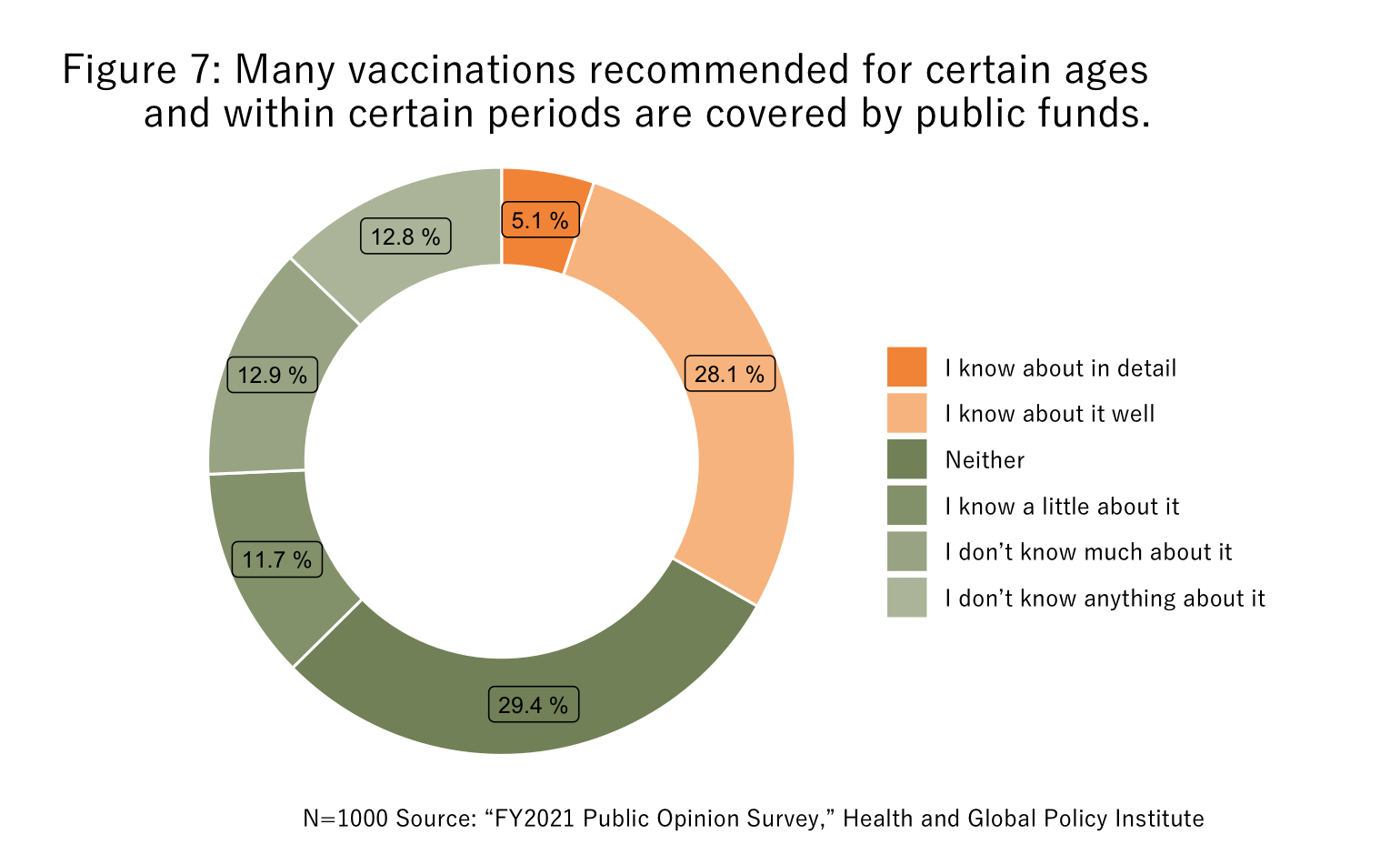
Key findings of the survey
When considering taking COVID-19 vaccines, concerns about adverse reactions and vaccine effectiveness and safety were seen among both respondents under age 65 and respondents age 65 and over. Concern toward adverse reactions was especially prominent among respondents age 65 and over who had not yet received the third shot.
In a question on general immunization and vaccination policy not limited to COVID-19 vaccines, approximately 30% of respondents were aware that vaccinations are conducted with coverage from public funds. Although vaccinations for over 90% of the citizens of Japan are covered by public funds, awareness toward this fact was extremely low.
2022.04.26
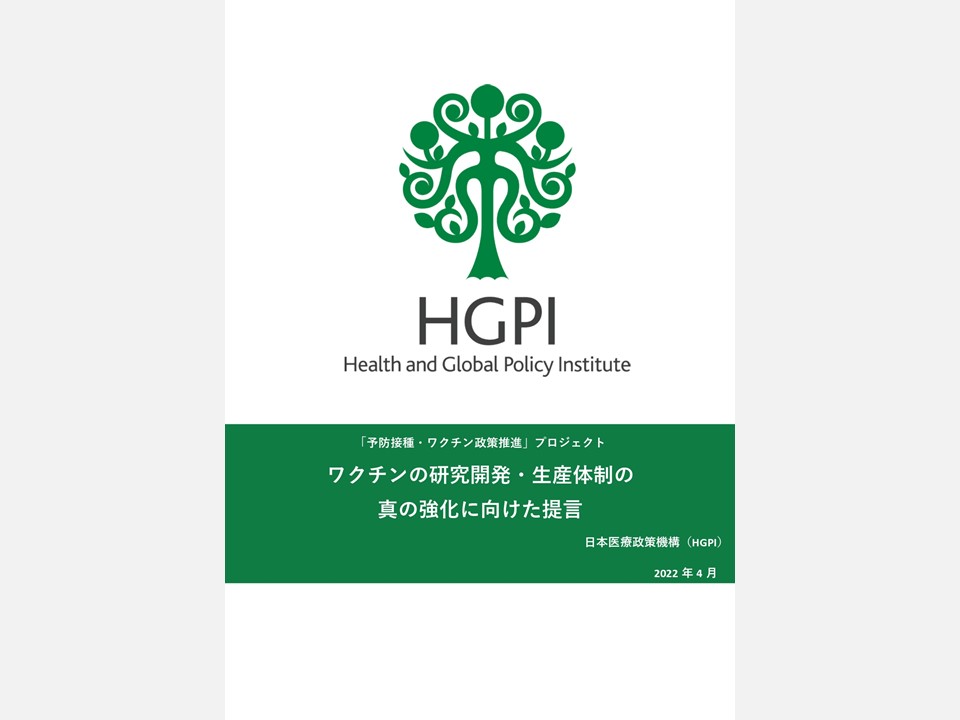
Immunization and Vaccination Policy Project Working Group 5 Recommendations
Recommendations for Truly Strengthening the Vaccine R&D and Production Pipeline
This proposal summarizes those discussions. Discussion points have been arranged in three perspectives on initiatives that require rapid responses during the ongoing COVID-19 pandemic or require action during ordinary times for emergency preparedness: strengthening the vaccine R&D and production pipeline, improving the clinical trial environment, and reforming the pharmaceutical affairs system for vaccines.
Executive Summary
1 Reinforce the Vaccine R&D and Production Pipeline
1.1 The need for a true command center in the vaccine R&D and production pipeline and to rapidly establish that system
1.2 Taking steps during non-emergencies to strengthen the domestic vaccine R&D and production ecosystem and to promote international collaboration2 Create an Environment for Vaccine Clinical Trials
2.1 Establishing a domestic clinical trial environment during non-emergencies
2.2 Establishing a system during non-emergencies for conducting clinical trials abroad3 Reform Vaccine Regulations
3.1 Enacting emergency pharmaceutical regulations rapidly in times of crisis
3.2 Collaboration between the vaccine R&D and production pipeline and pharmaceutical affairs system during non-emergencies as a form of emergency preparedness
3.3 Establishing systems during non-emergencies for examination and approval authorities to provide exemptions
Working Group 5 “Vaccine R&D and Production Pipeline” Members
- Ken J. Ishii (Professor, Division of Vaccine Science, Institute of Medical Science, The University of Tokyo/ Director, International Vaccine Design Center, Institute of Medical Science)
- Masayuki Imagawa (Chief Executive, Japan Vaccine Industry Association/ Vice President & Head, Japan Vaccine Business Unit, Takeda Pharmaceutical Co., Ltd.)
- Hiroshi Kasanuki (Specially Appointed Professor, Waseda University/ Advisor, Institute for Medical Regulatory Science, Waseda University)
- Kengo Sonoda (General Manager, Development Department, R&D Division, KM Biologics Co., Ltd.)
- Hideki Hasegawa (Director, Center for Influenza and Respiratory Virus Research, National Institute of Infectious Diseases)
- Yoshiharu Matsuura (Director, Center for Infectious Disease Education and Research (CiDER))
- Shinji Matsumoto (Chair, Vaccines Working Team, EFPIA Japan)
- Isao Miyairi (Professor, Faculty of Pediatrics, Hamamatsu University School of Medicine)
- Yoshiaki Yamagishi (Associate Professor, Medical Center of Translational Research, Department of Medical Innovation, Osaka University)
Observer
- Yasuhiro Araki (Director, Office of Vaccine and Blood Products, Pharmaceuticals and Medical Devices Agency)
Special Advisors
- Keizo Takemi (Member, House of Councilors; Chairperson, Association for the Promotion of Improved Public Health through Vaccinations, Parliamentary Group for Vaccines and Prevention)
- Noriko Furuya (Member, House of Representatives; Acting Chairperson, Association for the Promotion of Improved Public Health through Vaccinations, Parliamentary Group for Vaccines and Prevention)
Child Health
2022.06.24
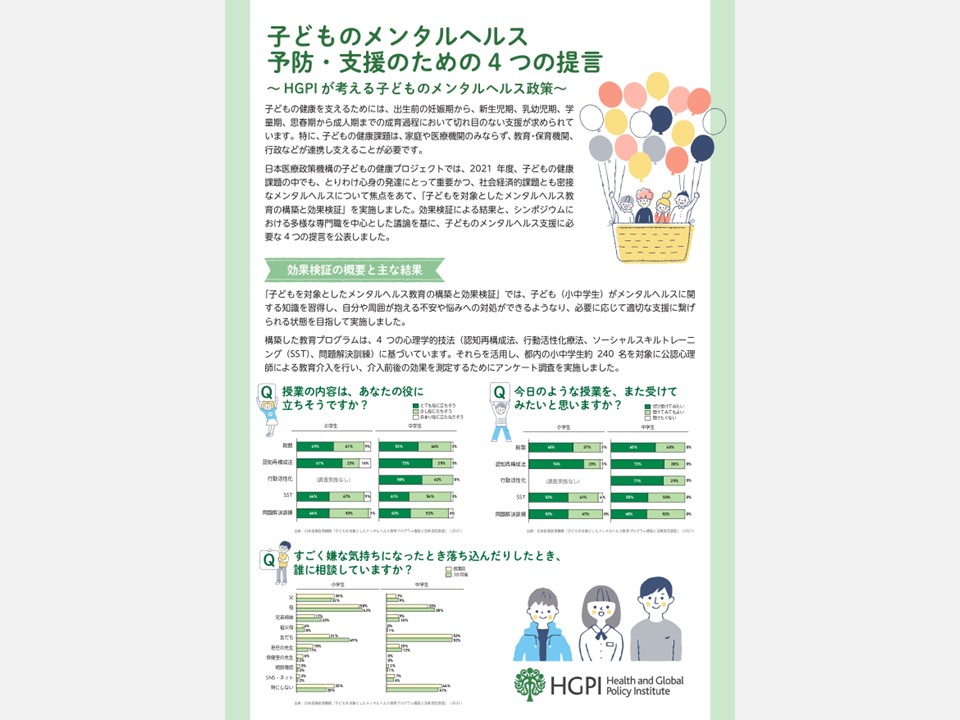
Four Recommendations for Prevention and Support in Children’s Mental Health
HGPI’s View on Children’s Mental Health Policy
The HGPI Child Health Project conducted and published a report. We then presented the four following recommendations for supporting children’s mental health which are based on the verification results and discussions centered around multi-disciplinary specialists held at our expert meetings.
Four recommendations for prevention and support in children’s mental health
- Introduce practical mental health education in schools for all elementary and middle school students and provide continuous follow-up consultations.
- Advance multi-disciplinary collaboration in communities that aims to provide children with comprehensive preventive mental health care and support.
- Build a system that delivers preventive mental health care and early detection and intervention to all children regardless of their socioeconomic circumstances at home.
- Eliminate fragmentation among ministries and agencies and across fields and distribute and utilize resources in an evidence-based, efficient manner with the goal of advancing policies that meet the needs of elementary and middle school students.
2022.06.16
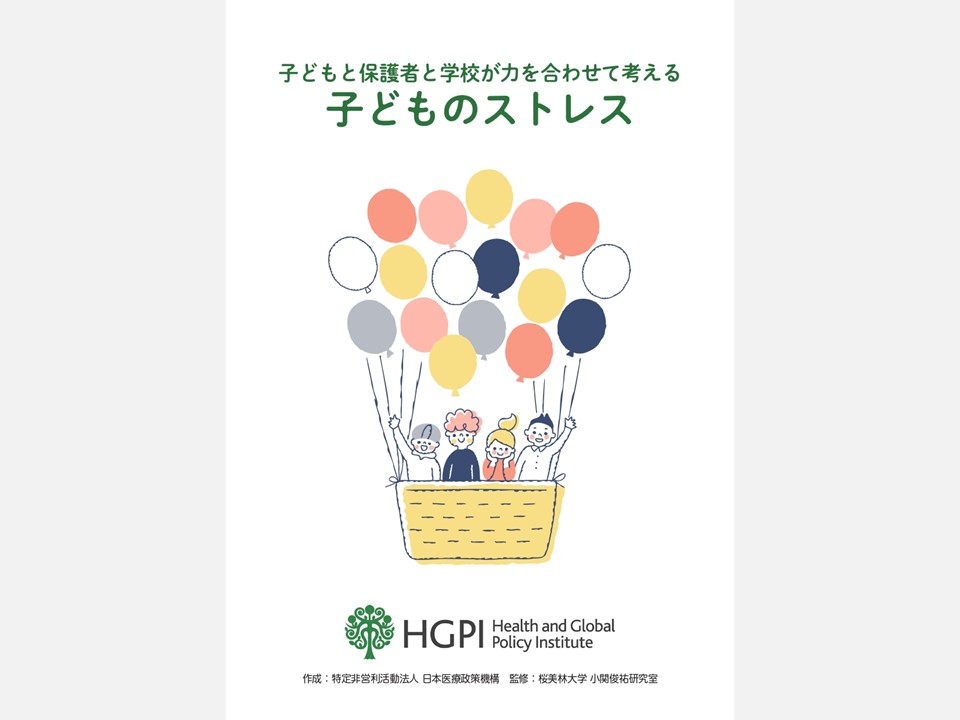
Research Report
Building a Mental Health Program for Children and Measuring its Effectiveness
After collecting opinions from multiple experts, the HGPI Child Health Project constructed a mental health program for elementary and middle school students with the goal of enabling children to be able to take preventive action for mental health. The results of this project showed there is a clear need for mental health education among elementary and middle schoolers as well that educational interventions are effective. It also showed the need for support related to mental health, the need for educational opportunities to learn about prevention in schools, and the need to promote policies in children’s mental health that cut across ministries and agencies and are based on a life course approach.
Non-partisan Diet Member Briefing – 30-minute Health Policy Update
2022.06.08
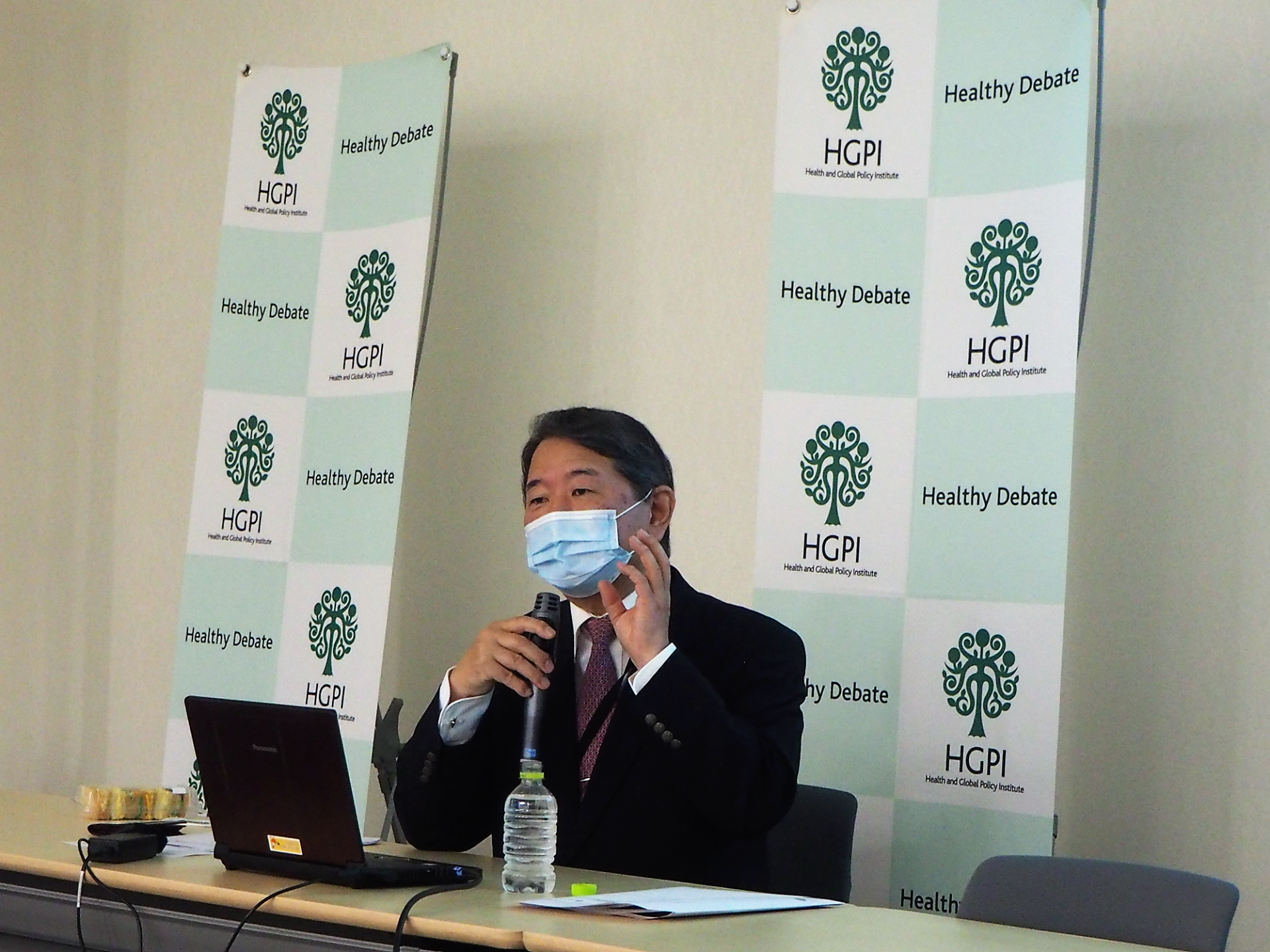
The Latest on Cardiovascular Disease Control and Voices From the Frontline – Circumstances Since the Basic Act and Best Practices from Communities and Regions
It featured a lecture from Prof. Mitsuaki Isobe, Director of the Sakakibara Heart Institute of the Japan Research Promotion Society for Cardiovascular Diseases, in which he explained necessary future reforms from the perspective of current circumstances and challenges in cardiovascular medicine in Japan.
Key points of the lecture
- A transport system designed for cardiac and vascular emergencies must be established.
- A system providing disease management programs for heart failure among elderly people must be established.
- A support system for pediatric patients with congenital heart disease should be established.
- Regional best practices should be expanded horizontally.
2022.04.25
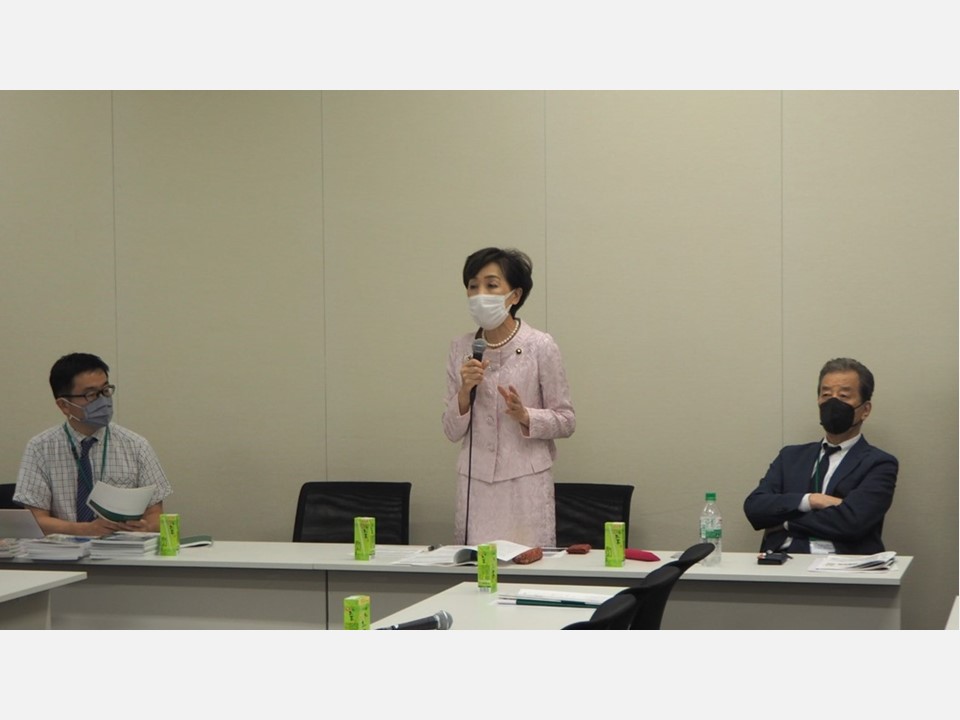
Issues and Necessary Actions for the Vaccine R&D and Production Pipeline
At the briefing, Prof. Ken J. Ishii (Professor, Division of Vaccine Science and Director, International Vaccine Design Center, The Institute of Medical Science, The University of Tokyo) gave a lecture on the value of vaccines in society and issues that must be addressed in the vaccine R&D and production pipeline.
Key points of the lecture
- The Coronavirus Disease 2019 (COVID-19) pandemic caused a revolution in vaccine development through advances like the acceleration of the development process or the real-world application of mRNA vaccines.
- The COVID-19 pandemic helped us reaffirm that vaccines for infectious diseases are the cornerstone of healthcare and public health, and that they are crucial for national security, diplomacy, and social and economic activity. As such, we must rapidly initiate a domestic command center and bases for R&D and production.
- The G7 has endorsed the “100 Days Mission,” which aims to produce vaccines and other tools within 100 days of the next pandemic. A group of professionals in vaccine R&D that can take action during emergencies should be formed. Rather than having an all-Japan group, it should be a global alliance. Of course, said group should also have the capacity to act during non-emergencies.
- Japan can reinforce education on vaccines and similar topics in healthcare and public health to become an exporter of safe vaccines that people will trust due to the Japanese brand.
2022.04.14
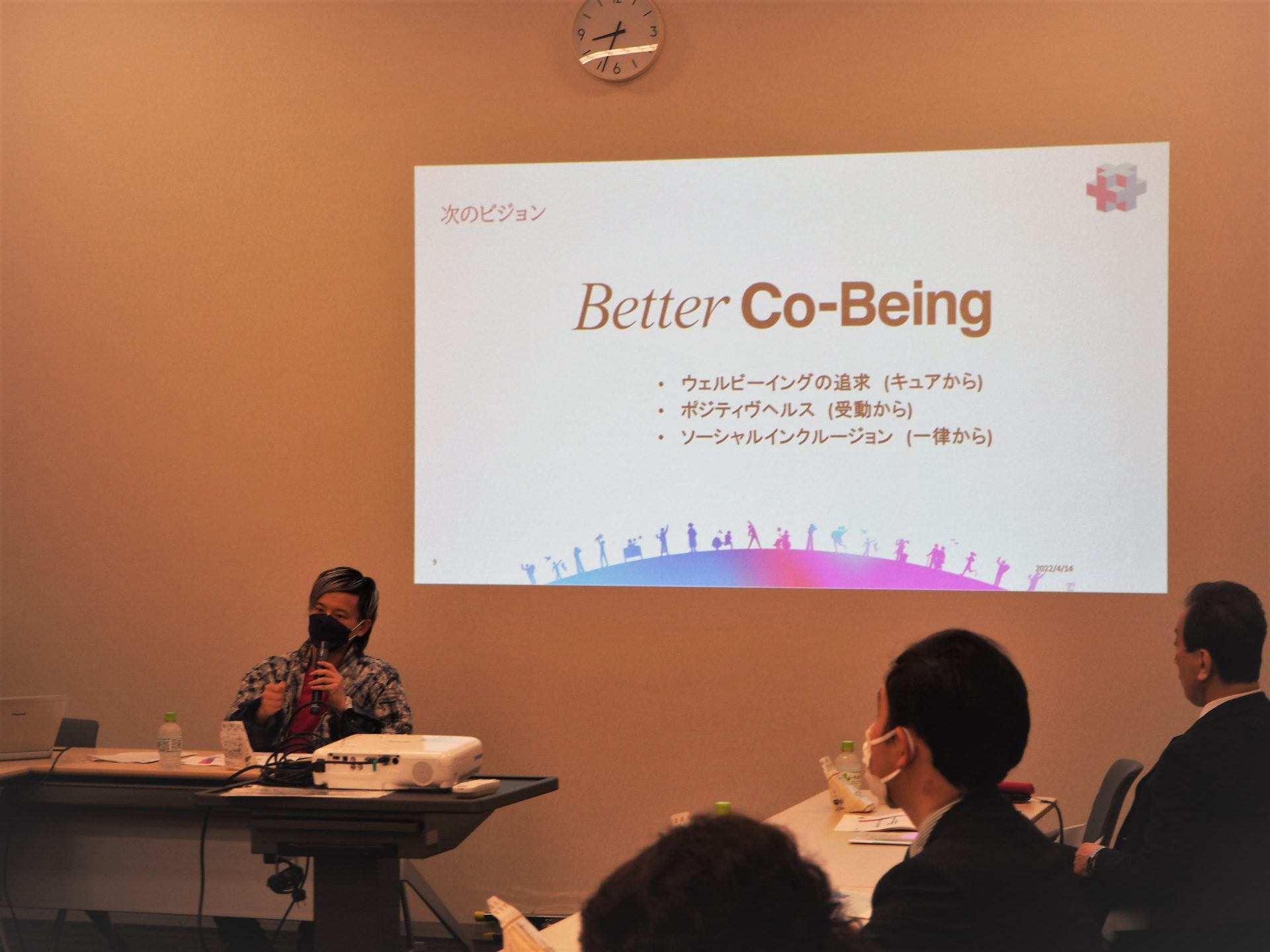
Strengthening Data Infrastructure and Use to Enhance the Sustainability and Resilience of the Health System
At the meeting, Prof. Hiroaki Miyata (Professor, Keio University) gave a lecture on issues brought to light within the health system by the COVID-19 pandemic, and how Japan can use the lessons learned from the pandemic to create a new health system and society.
Global Health
2022.06.27 ― 07.02
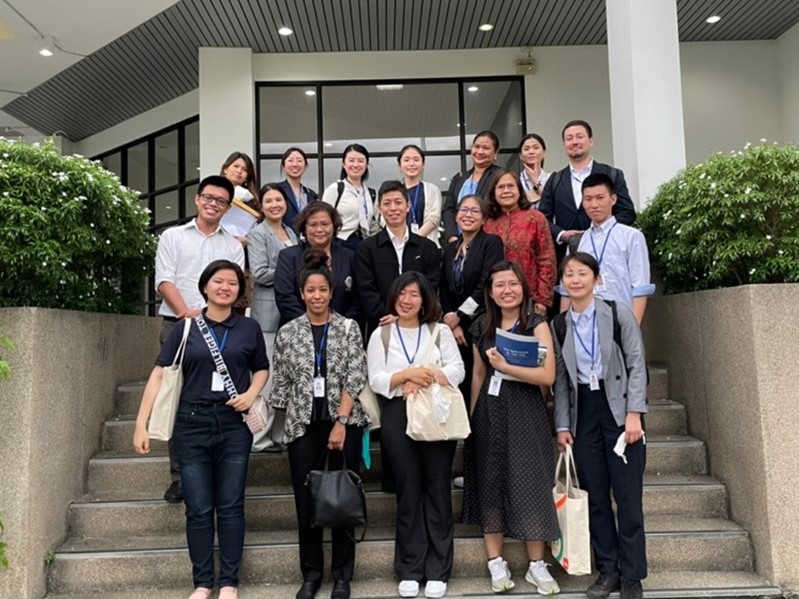
Global Health Education Program (G-HEP) 2021-2022
Fieldwork Trip to Bangkok, Thailand
HGPI and the Faculty of Public Health at Mahidol University jointly organized the Global Health Education Program (G-HEP) 2021-2022, program participants include students and young professionals from Japan, Thailand, Myanmar, Nepal, and Bhutan. The G-HEP is focused on, “solving health issues of urban migrants under the COVID-19 pandemic”, both in Japan and in Thailand, and this past week, June 27 – July 2 we were able to participate in the fieldwork trip in Bangkok, Thailand.
Dementia
2022.06.10
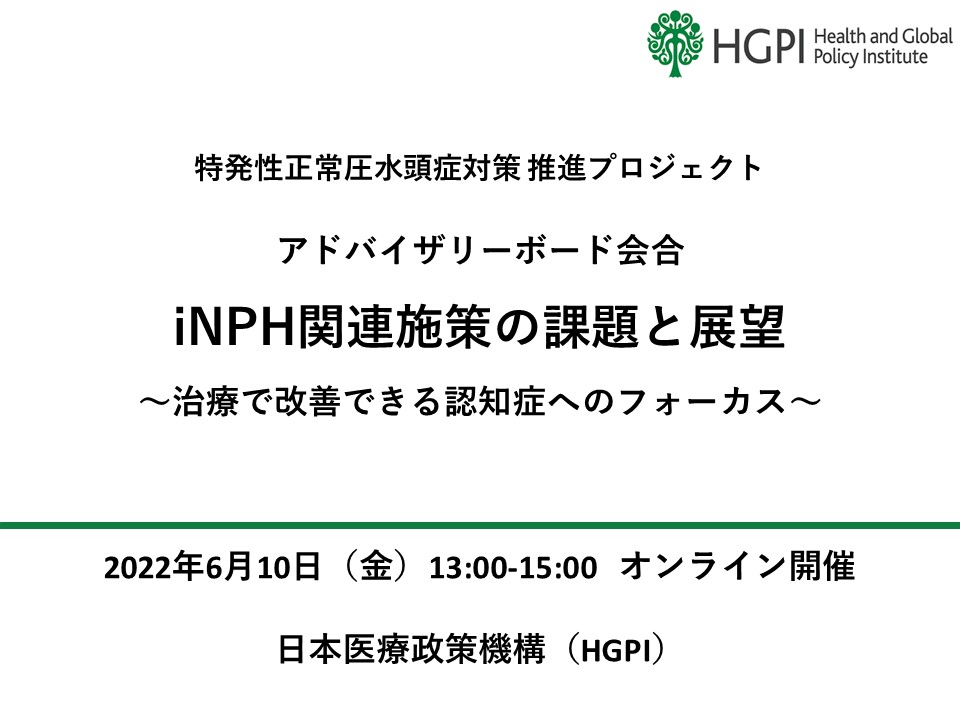
Advisory Board Meeting
Current Issues and Future Prospects for Idiopathic Normal Pressure Hydrocephalus (iNPH) Measures – Focusing on a Form of Dementia that Improves with Treatment
HGPI hosted a meeting of the advisory board for an initiative titled, “Current Issues and Future Prospects for Idiopathic Normal Pressure Hydrocephalus (iNPH) Measures – Focusing on a Form of Dementia that Improves with Treatment.” This initiative is being undertaken as one of the Dementia Policy Team’s activities for FY2022. Based on the discussion held at the preparatory meeting in March, this advisory board meeting was held with multi-stakeholders from industry, government, academia, and civil society and covered issues and potential methods for promoting iNPH measures with a focus on the healthcare provision system.
Advisory board members
- Chifumi Iseki (Lecturer, Department of Internal Medicine III, Faculty of Medicine, Yamagata University)
- Kazunari Ishii (Department Head, Diagnostic Radiology Division, Department of Radiology, Faculty of Medicine, Kindai University)
- Hiroaki Kazui (Professor, Department of Neuropsychiatry, Kochi Medical School)
- Madoka Nakajima (Associate Professor, Department of Neurosurgery, School of Medicine, Juntendo University)
- Tomoya Sato (Manager, Head of Hydrocephalus and Dementia Care Promotion, Integra Japan)
- Shigeki Yamada (Hospital Lecturer, Department of Neurosurgery, Shiga University of Medical Science)
- Manabu Yanagiishi (Central Group, Marketing Department, Sales, and Marketing Division, Nihon Medi-Physics Co., Ltd.)
Representative of the affected party
- T.S. (70s, male)
Observer
- Aki Nakanishi (Deputy Director, Chief of Research and Development, Division of Dementia Policy and Community-Based Long-Term Care Promotion, Health and Welfare Bureau for the Elderly, Ministry of Health, Labour and Welfare (MHLW); Technical Officer (Dementia), Division of the Heath for the Elderly, MHLW)
Mental Health
2022.05.18
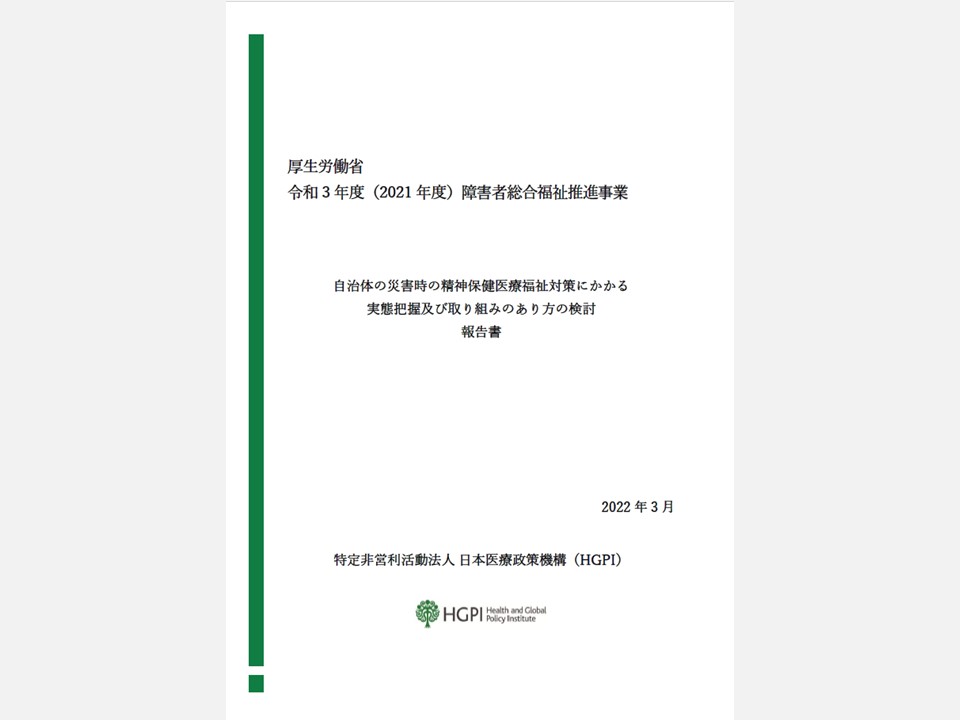
The FY2021 Ministry of Health, Labour and Welfare Project for the Promotion of Comprehensive Welfare for Persons with Disabilities
Assessing the State of and Examining Future Approaches to Mental Health and Welfare Support Systems at Local Governments
With the goal of enhancing municipal disaster mental health and medical welfare measures, we conducted a survey and hearings with local and prefectural governments and disaster relief organizations to examine how mental health and medical welfare systems operate immediately after disasters and in the medium- to long-term. In addition to analyzing the survey results, we also conducted hearings and an expert meeting with people involved in mental health as well as domestic and international specialists in this field. Through those activities, we sorted approaches and issues for medium- to long-term disaster response planning and formulated recommendations on preparations to make in mental health support for responding to future disasters. They have been compiled under the title of “Examples of and Recommendations for the Creation of Municipal Mental Health and Medical Welfare Systems for Medium- to Long-term Post-Disaster Response.”
Health Policy Academy
2022.05.26
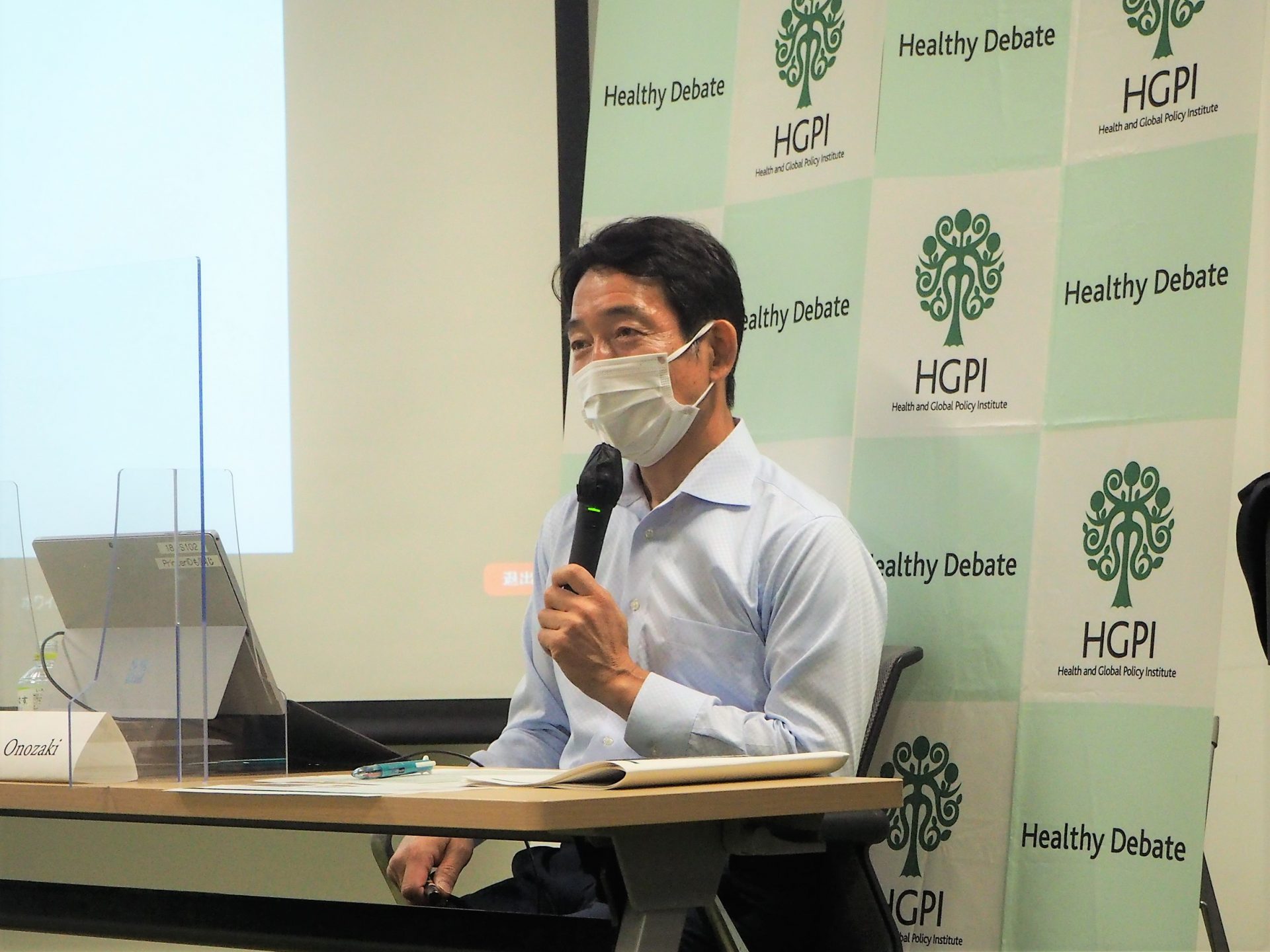
The 11th Semester of Health Policy Academy
On May 26, 2022, HGPI held the first lecture of the 11th semester of Health Policy Academy (HPA). Due to the ongoing Coronavirus Disease (COVID-19) pandemic, this semester of HPA faces the challenge of being held in a blended format. However, this new format provides the opportunity to deliver the program to people based in different regions in Japan. The 11th semester of HPA will be held over the next six months. It aims to provide participants with opportunities to learn basic knowledge and acquire skills for health policy through lectures by opinion leaders and interactive multi-stakeholder discussions among participants.
Lectures and Media Coverage
HGPI’s projects have been covered by various media outlets both inside and outside of Japan.
2022.06.25
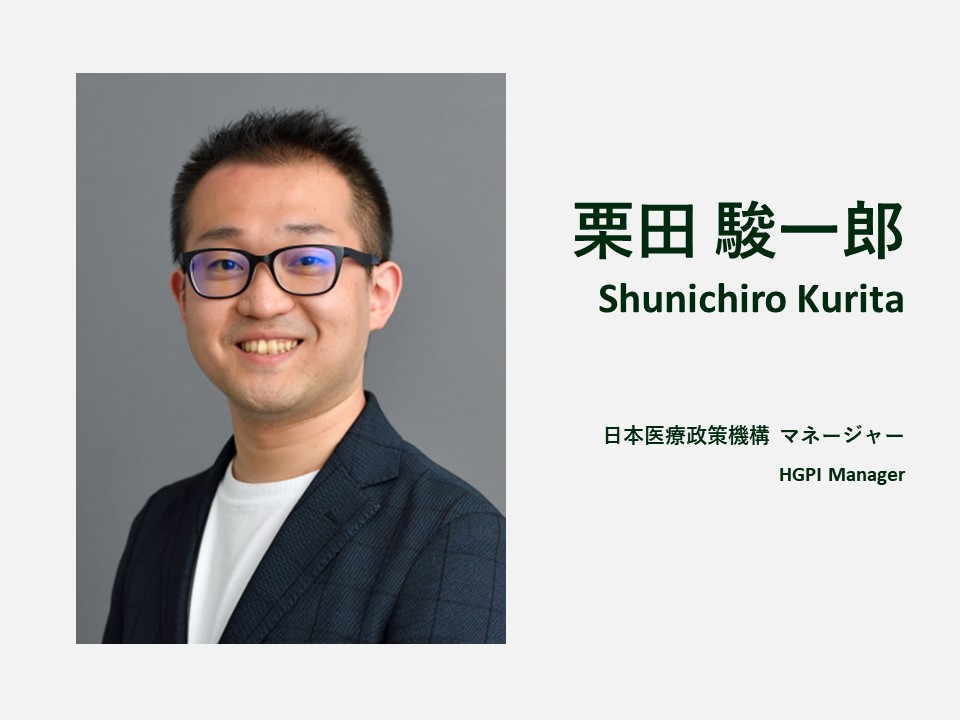
The WKC Forum 2022
Reconsidering the Roles of Healthcare Professionals Who Support the Foundation of the Health Insurance System
HGPI Manager Mr. Shunichiro Kurita participated in a panel discussion at WKC Forum 2022, which was hosted by WHO Kobe Centre.
Among the four pillars of the Global Strategy Directions, namely education, jobs, leadership, and service delivery, Mr. Kurita focused on jobs. He discussed the need for work style reform for all healthcare professionals, the significant and growing roles of nursing professionals outside of healthcare institutions, the best ways of securing diverse financial resources for improving compensation for healthcare professionals, and the importance of fostering social consensus to do so.
2022.06.18
The 23rd Annual Meeting of the Japanese Society of Normal Pressure Hydrocephalus
HGPI Manager Mr. Shunichiro Kurita gave a special lecture at the 23rd Annual Meeting of the Japanese Society of Normal Pressure Hydrocephalus. In the talk, titled “The Current State of Japan’s Dementia Policy and the Significance and Future of iNPH Treatment,” Mr. Kurita gave an overview of dementia policy today and how it can advance policy for treating idiopathic normal pressure hydrocephalus (iNPH), which is a form of dementia that improves with treatment. He then talked about future possibilities for iNPH policy when applying a policy process-based model.
2022.04.24
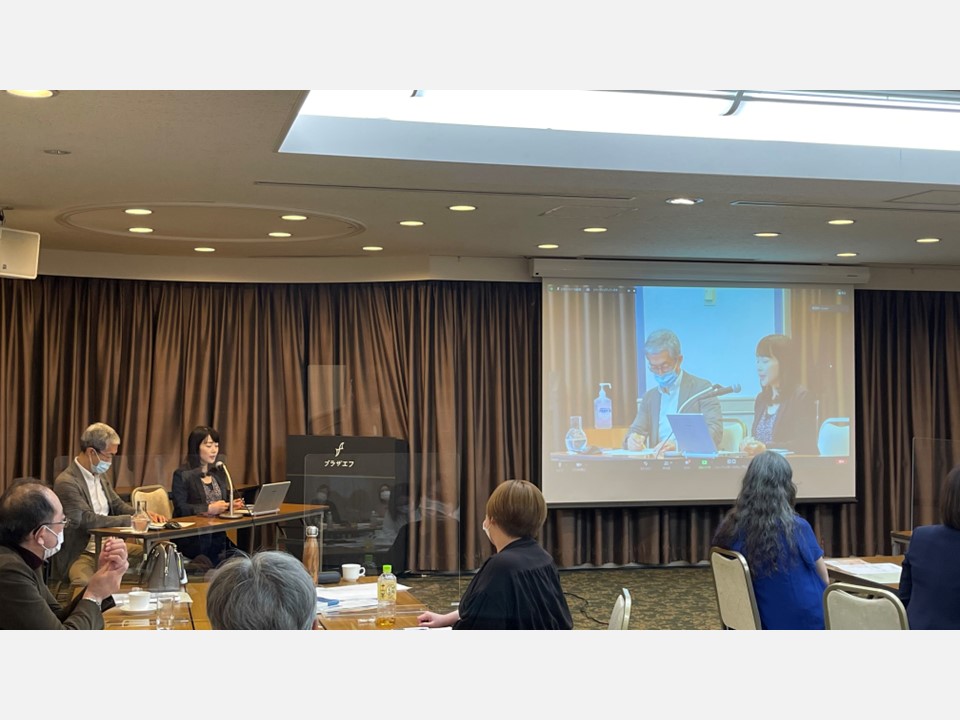
The 18th Women’s Health Seminar
HGPI Manager Ms. Yuko Imamura gave a lecture titled, “Expectations for Obstetrician-Gynecologists Active Throughout Japan from Public Opinion Survey Results” at the 18th Women’s Health Seminar hosted by the Japan Family Planning Association (JFPA; Chairperson: Kunio Kitamura).
Media Coverage
|
Private Think-Tank Calls for Dementia Discussions at G7 Summit Hiroshima (Kyodo News) |
Advocacy Activities to Encourage the Adoption of the Recommendations in Our Policy Proposals
HGPI composes and publishes reports and policy proposals for each of its projects. HGPI also makes efforts to encourage the implementation of the recommendations contained in those publications through advocacy activities targeting the government and Diet. Those efforts include providing explanations on the content of each report and proposal to representatives from relevant departments with the local and national government or to Diet members and local assembly members on an individual basis. In addition to cooperating closely with parties relevant to each project from the local and national government, HGPI also functions as a hub that creates links within the community of experts in each field when creating content for Diet member study sessions or when drafting bills. We engage in these cooperative efforts with a shared intent of encouraging the implementation of concrete policies based on our recommendations. In the past, recommendations included in HGPI’s reports and policy proposals have been reflected in policies after having been cited in presentations made by various groups within the government, including nonpartisan Diet member groups and project teams, or in proposals composed by those groups.
Providing Professional Expertise
Serving on Government Committees and Global Organizations
Senior members of HGPI have held various titles on government committees and in global health societies. Some of those titles are listed below.
- Kiyoshi Kurokawa: Member, World Dementia Council; Healthcare Policy Advisor, Cabinet Secretariat; Chairman, Council on the Future of Tokyo in a Super-Aged Society; Chairman, Cabinet Office’s AI Advisory Board
- Kohei Onozaki: Health Policy Advisor, Ministry of Health, Labour and Welfare; Social Security Team, Administrative Reform Conference, Cabinet Secretariat
- Ryozo Nagai: Member, Ministry of Health, Labour, and Welfare Social Security Council; Provisional Member, Council for Science and Technology, Ministry of Education, Culture, Sports, Science and Technology; Member, Cabinet Office’s AI Advisory Board
- Ryoji Noritake: Committee Member, Council on the Future of Tokyo in a Super-Aged Society
- Satoko Hotta: Member, Caregiver Fee Subcommittee and Welfare Division, Social Security Council, Ministry of Health, Labour and Welfare; Expert Committee Member, Policy Evaluation Council, Ministry of Internal Affairs and Communications
- Shinsuke Muto:Information Policy Advisor, Ministry of Health, Labour and Welfare



